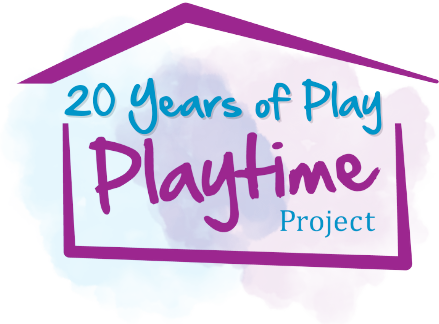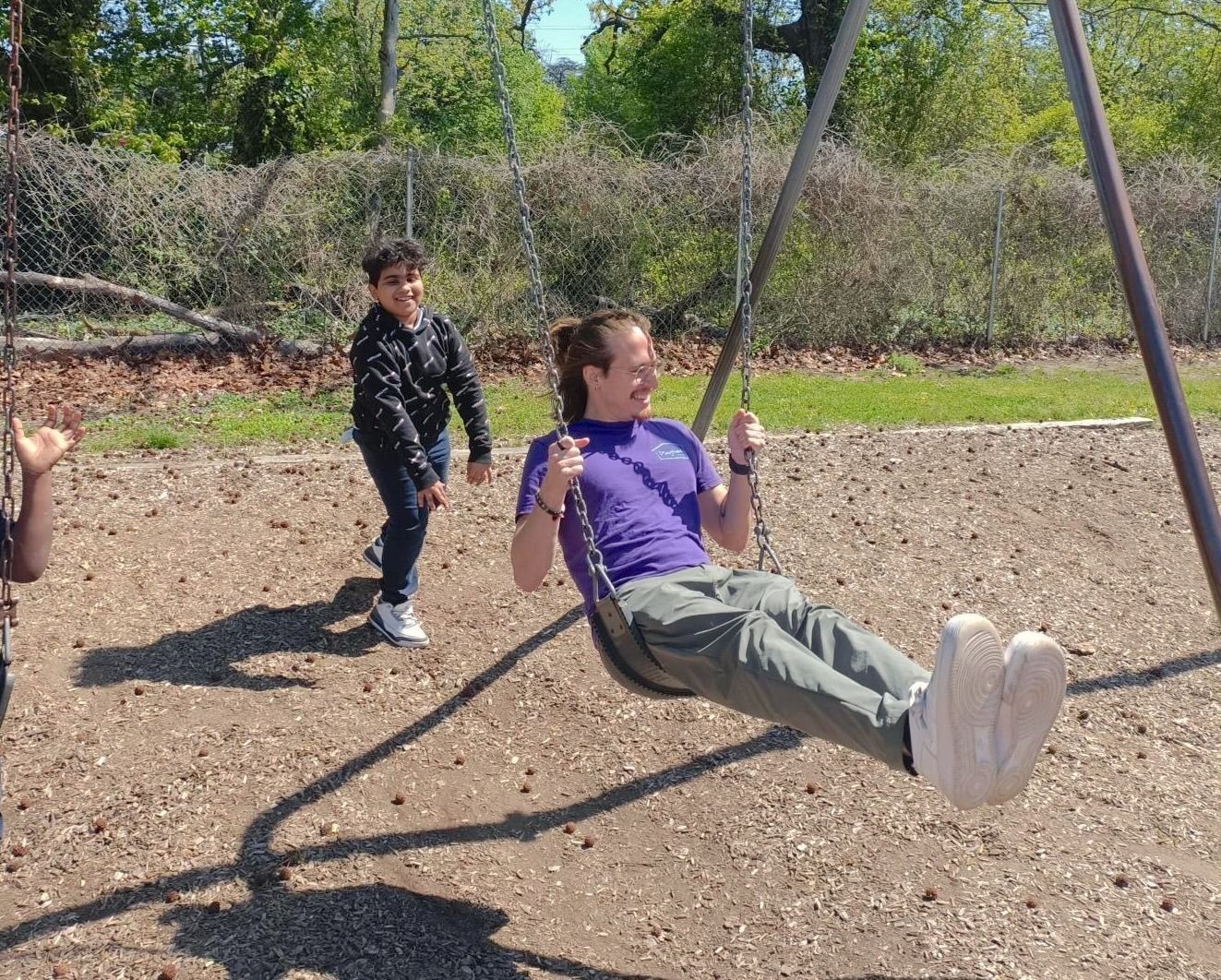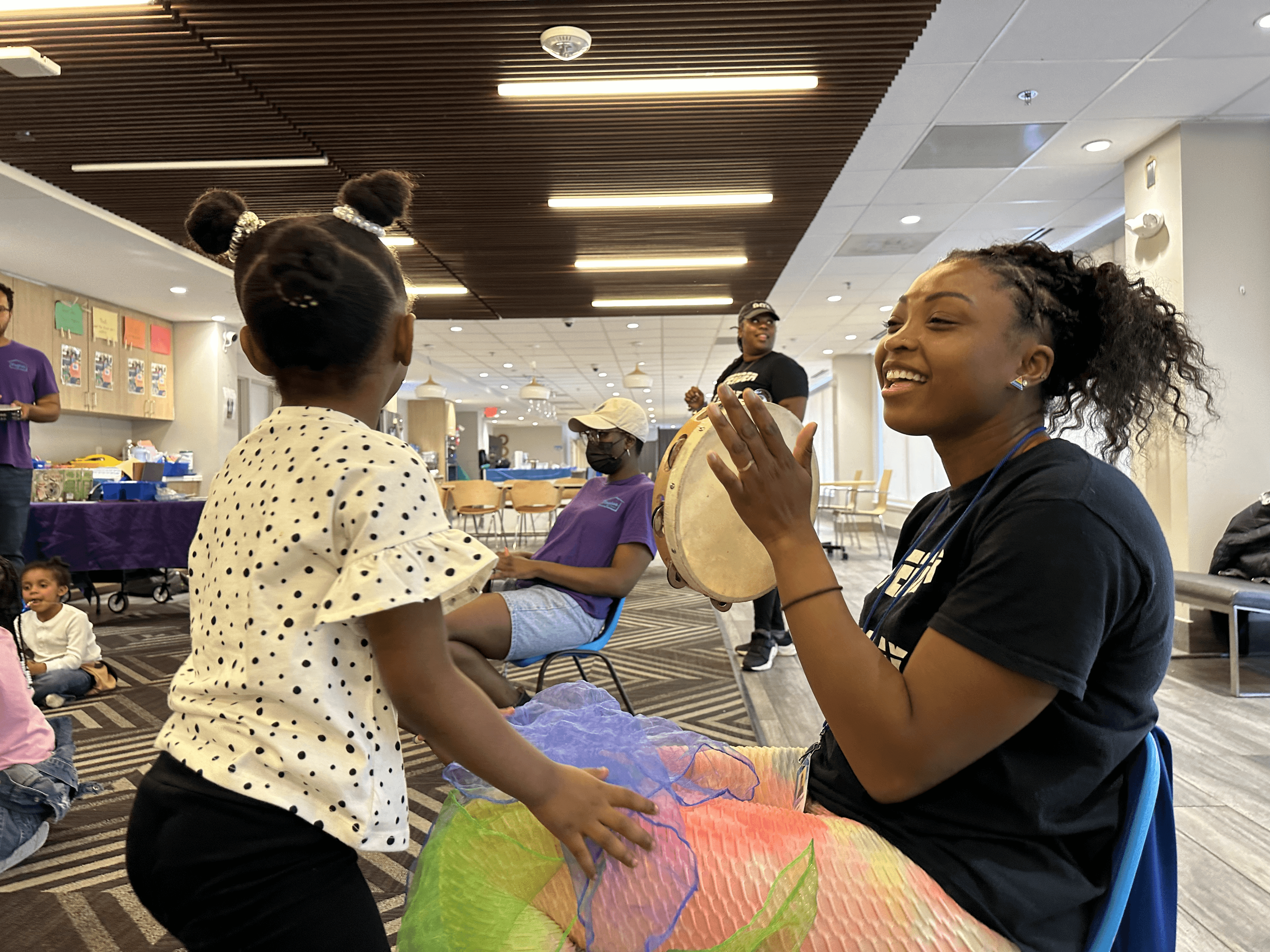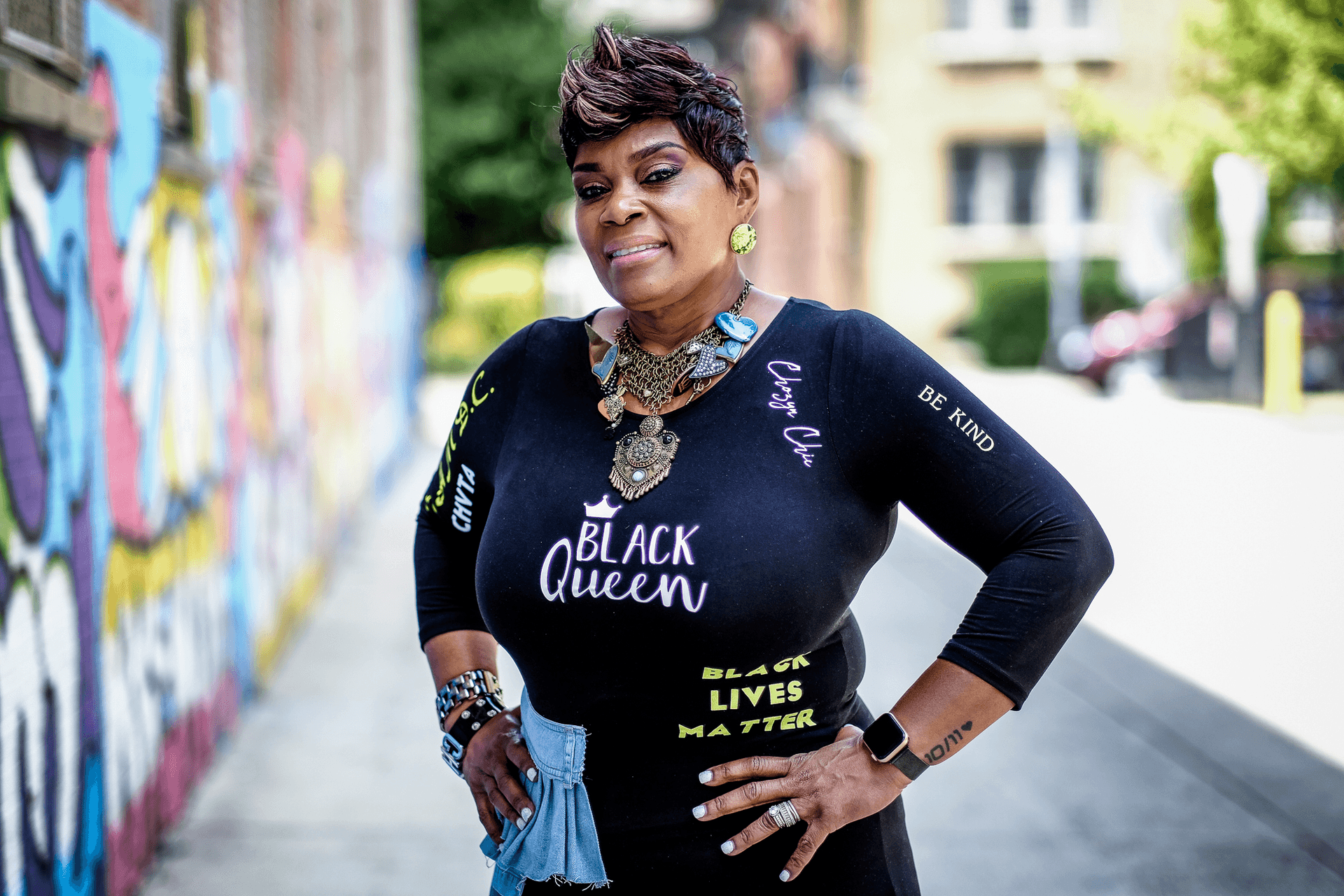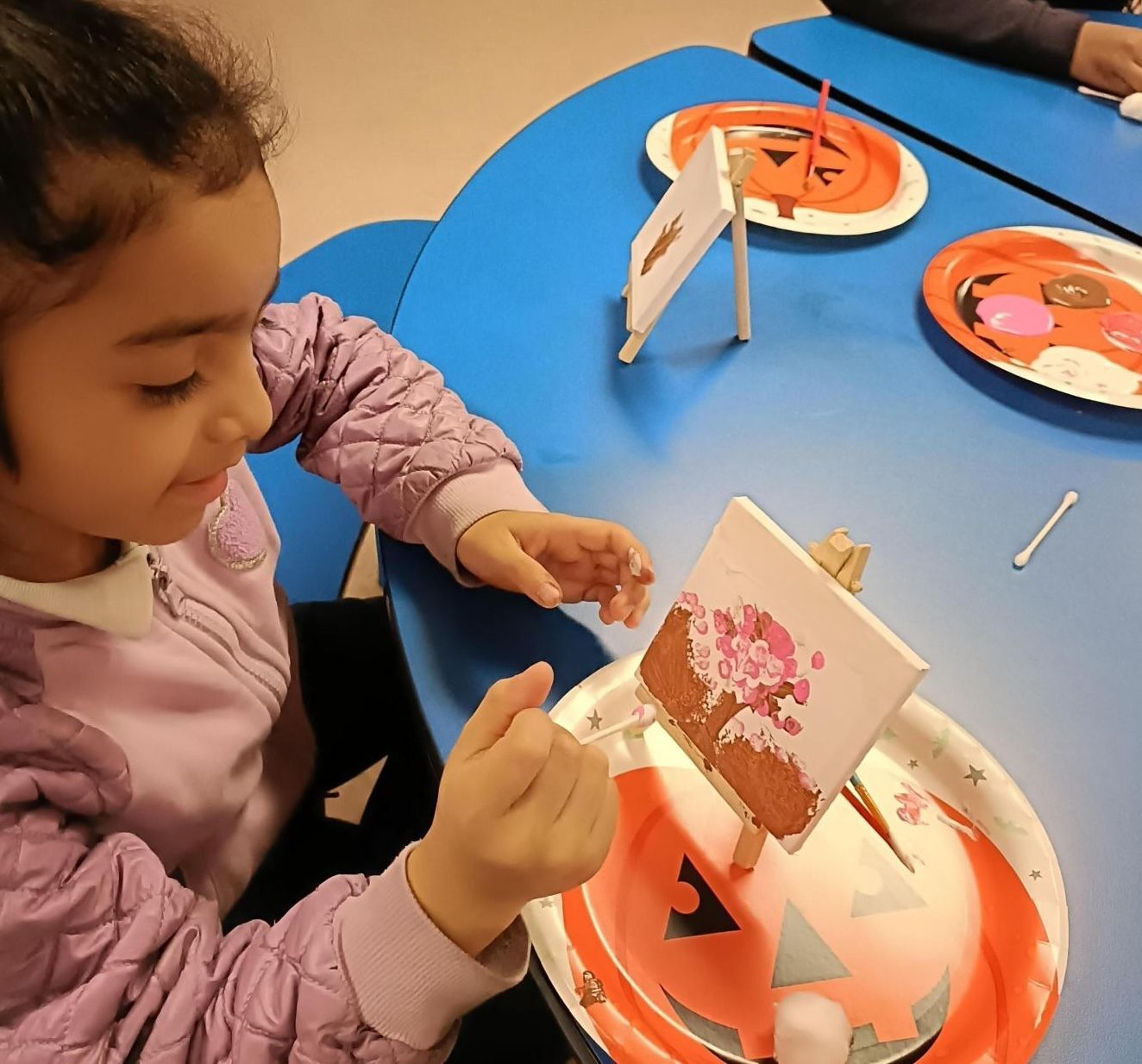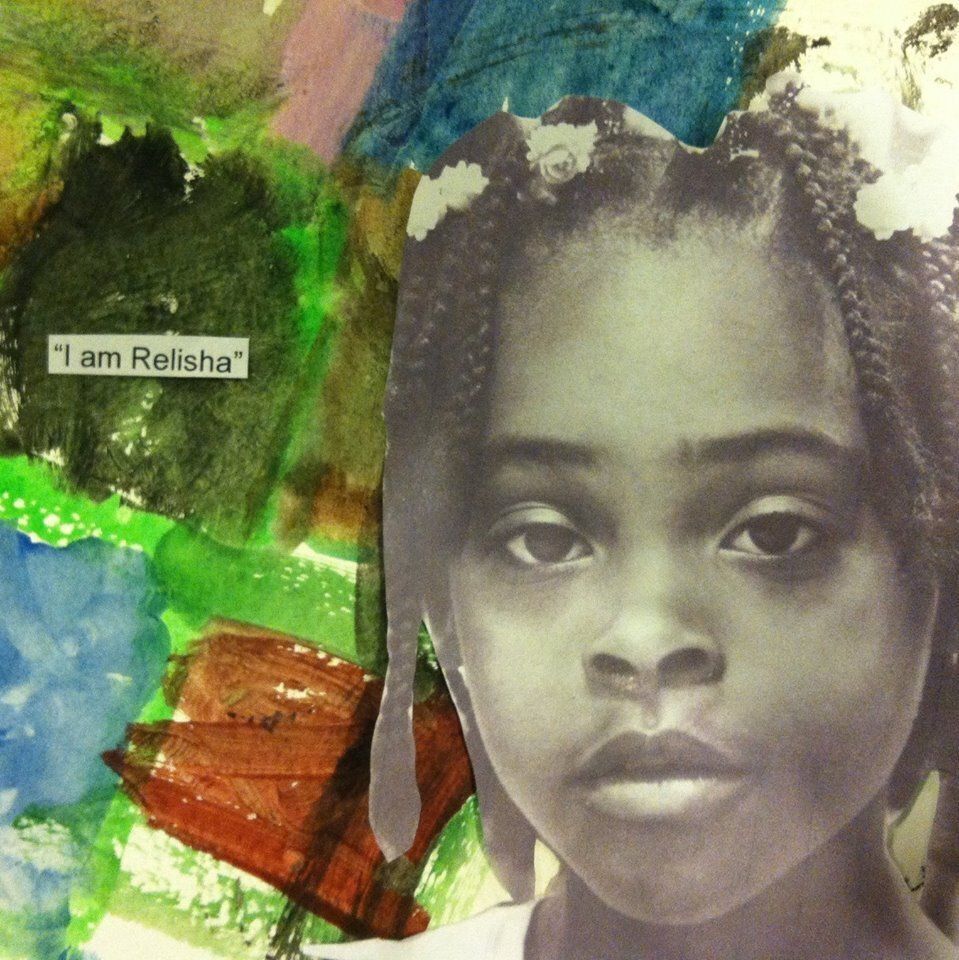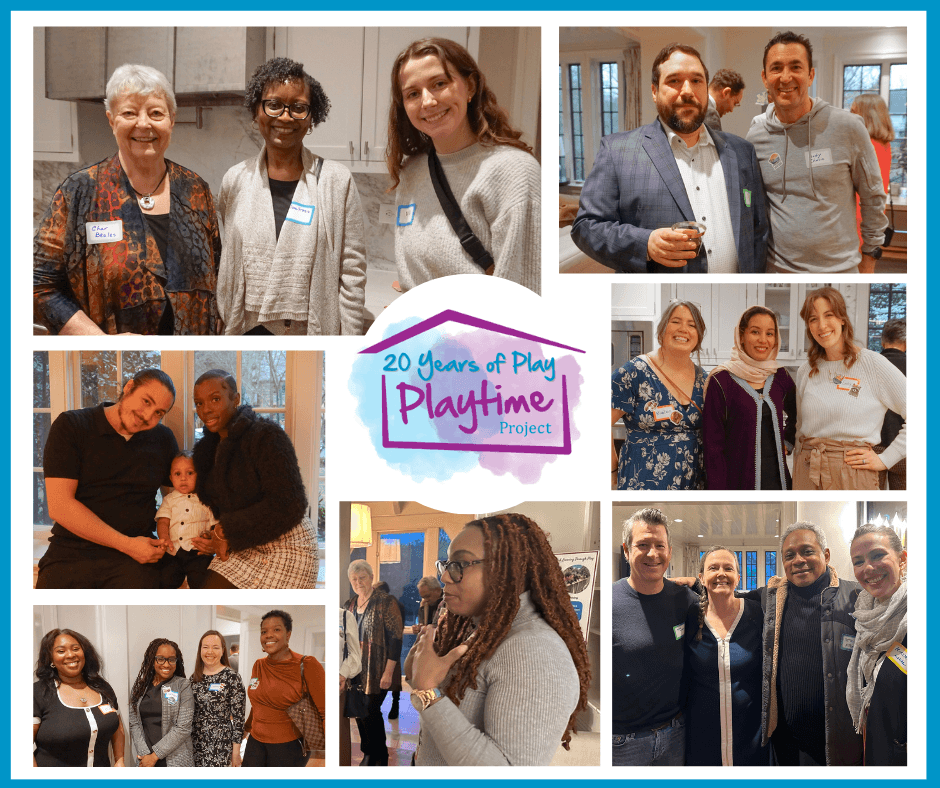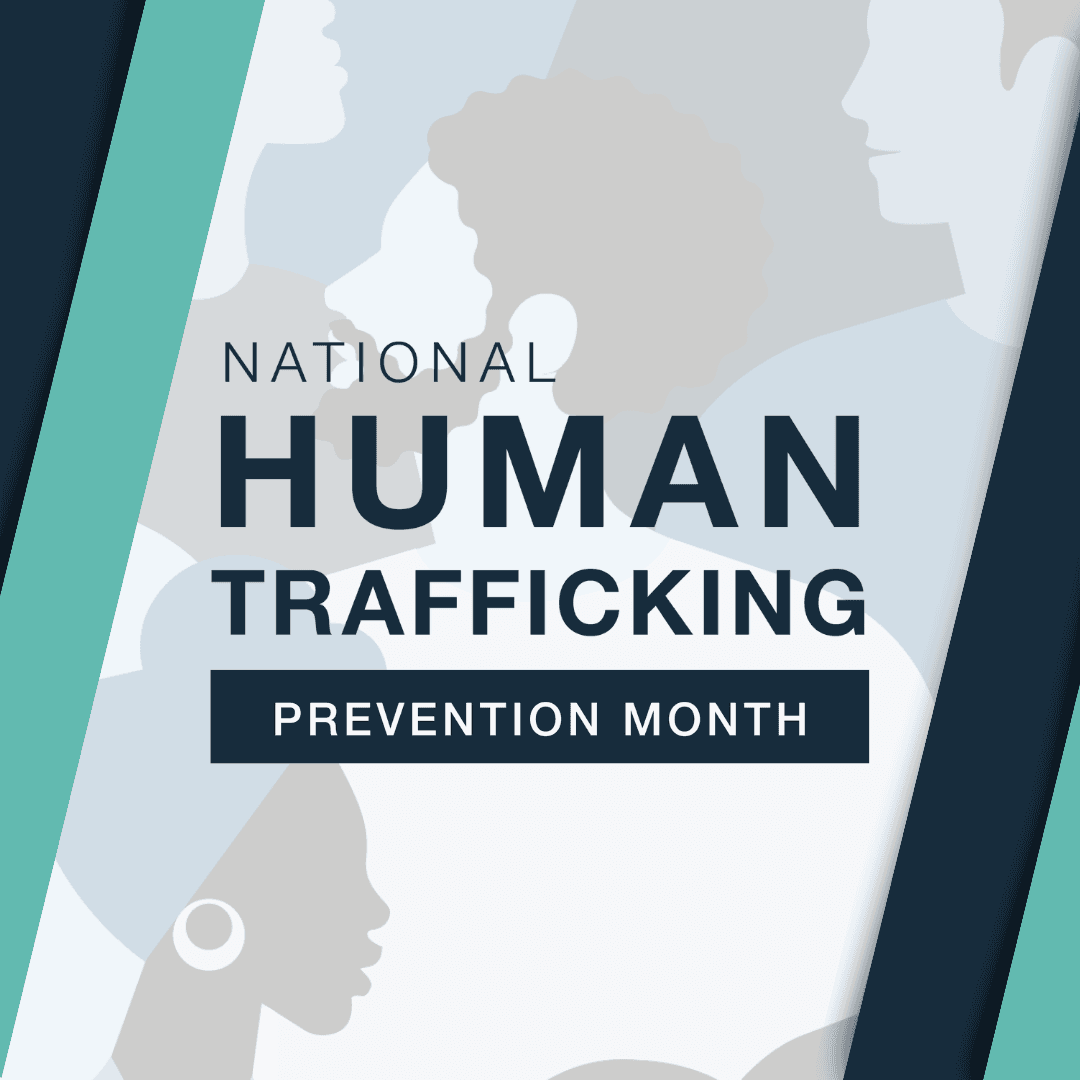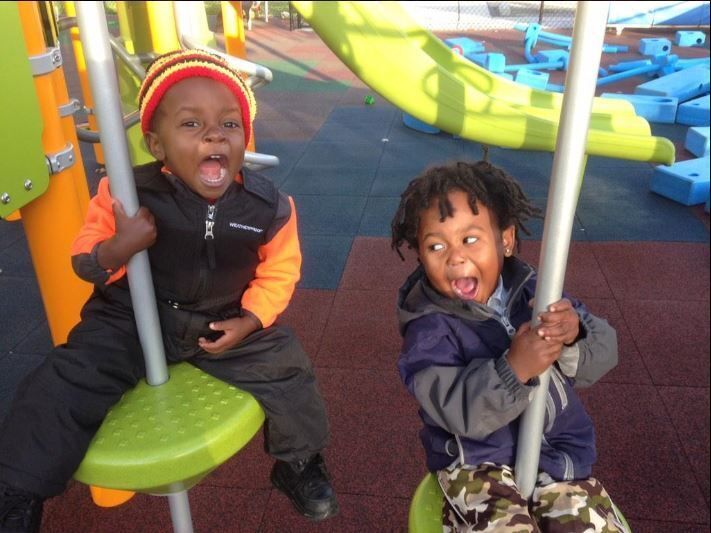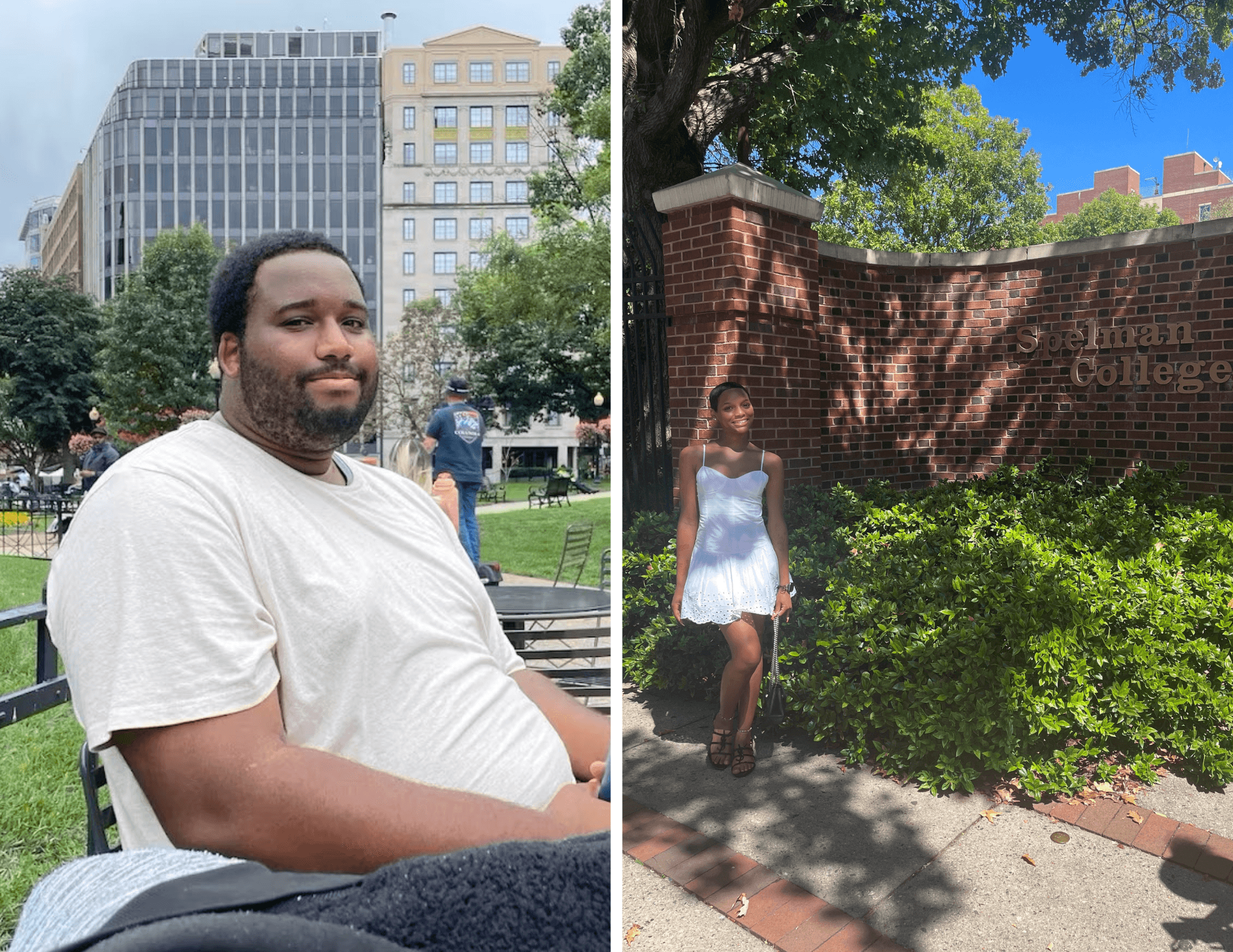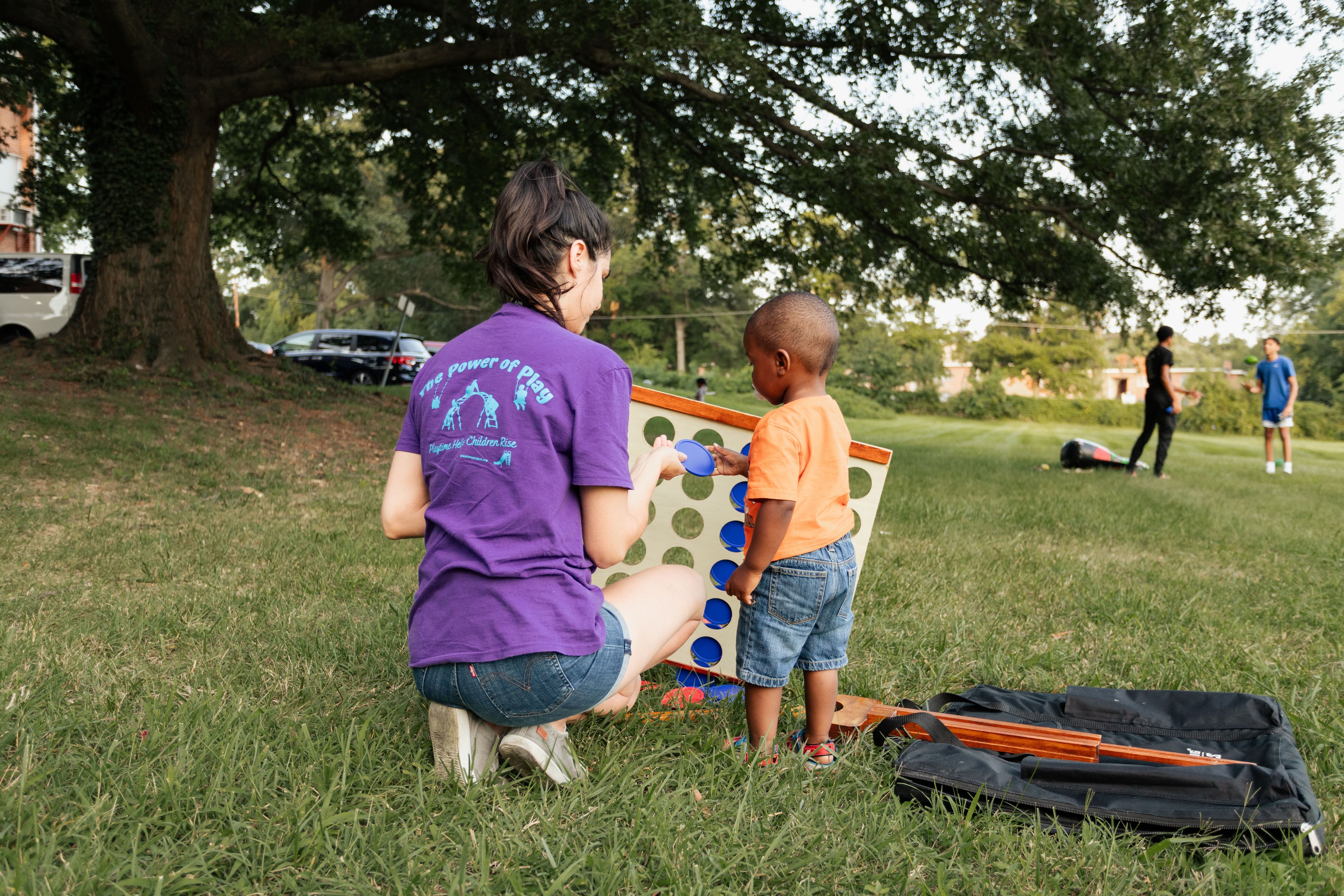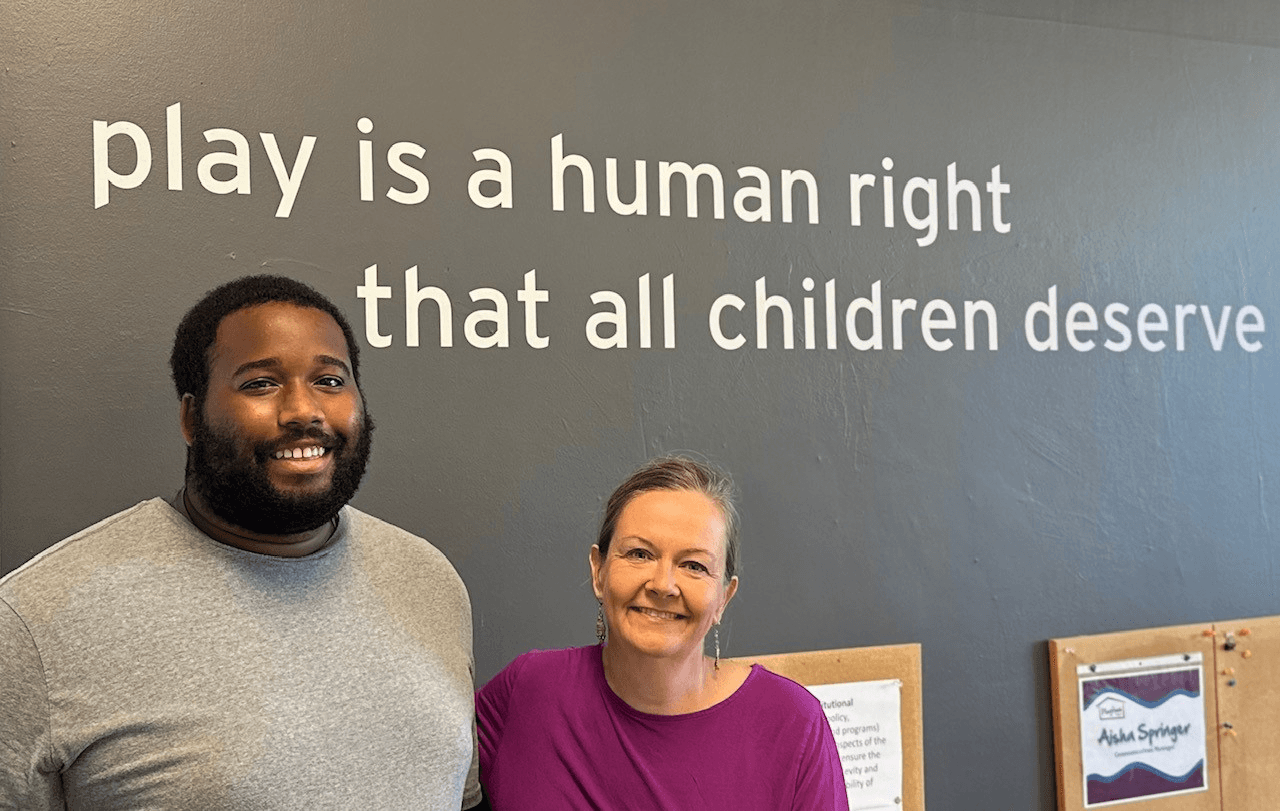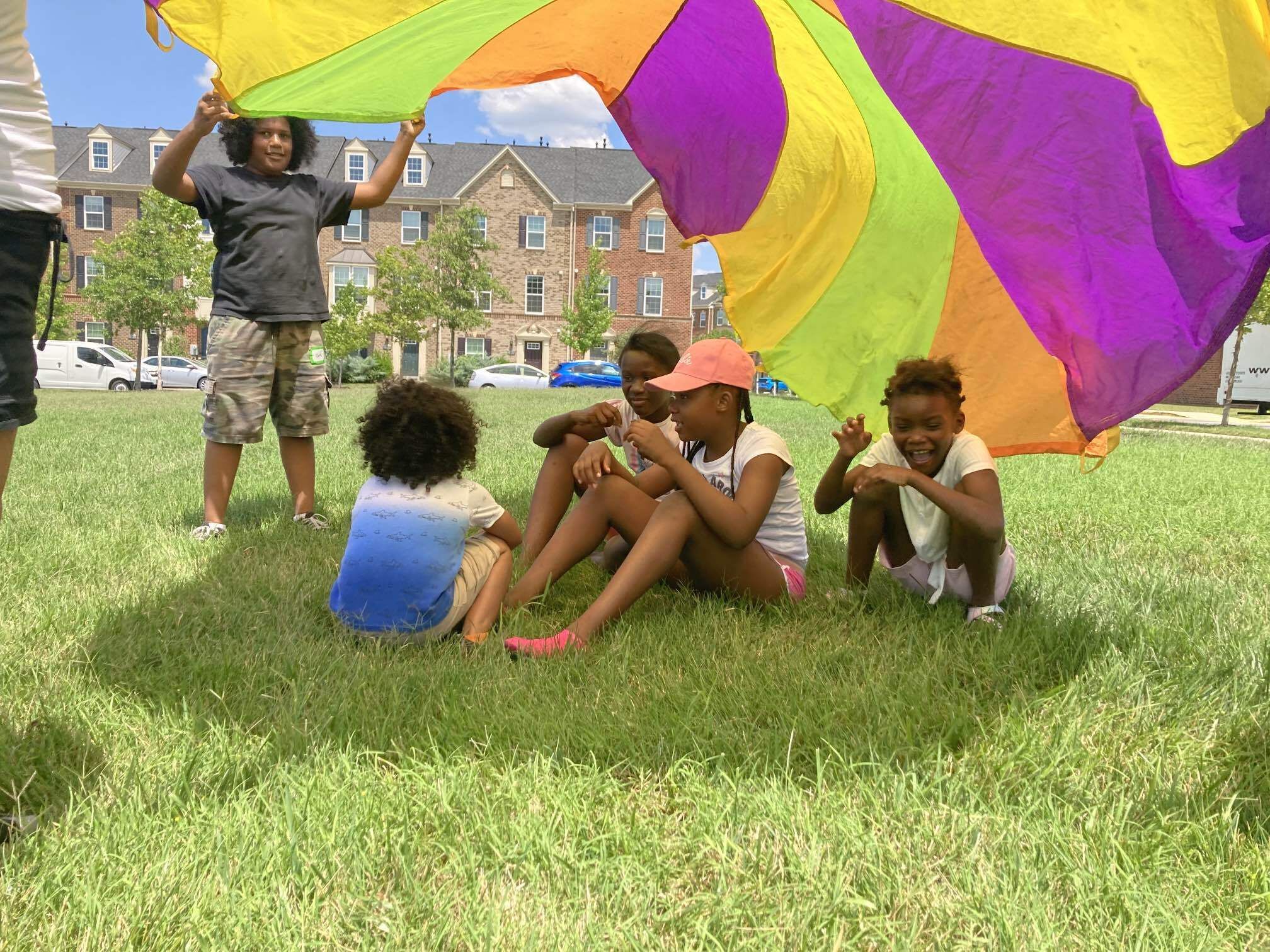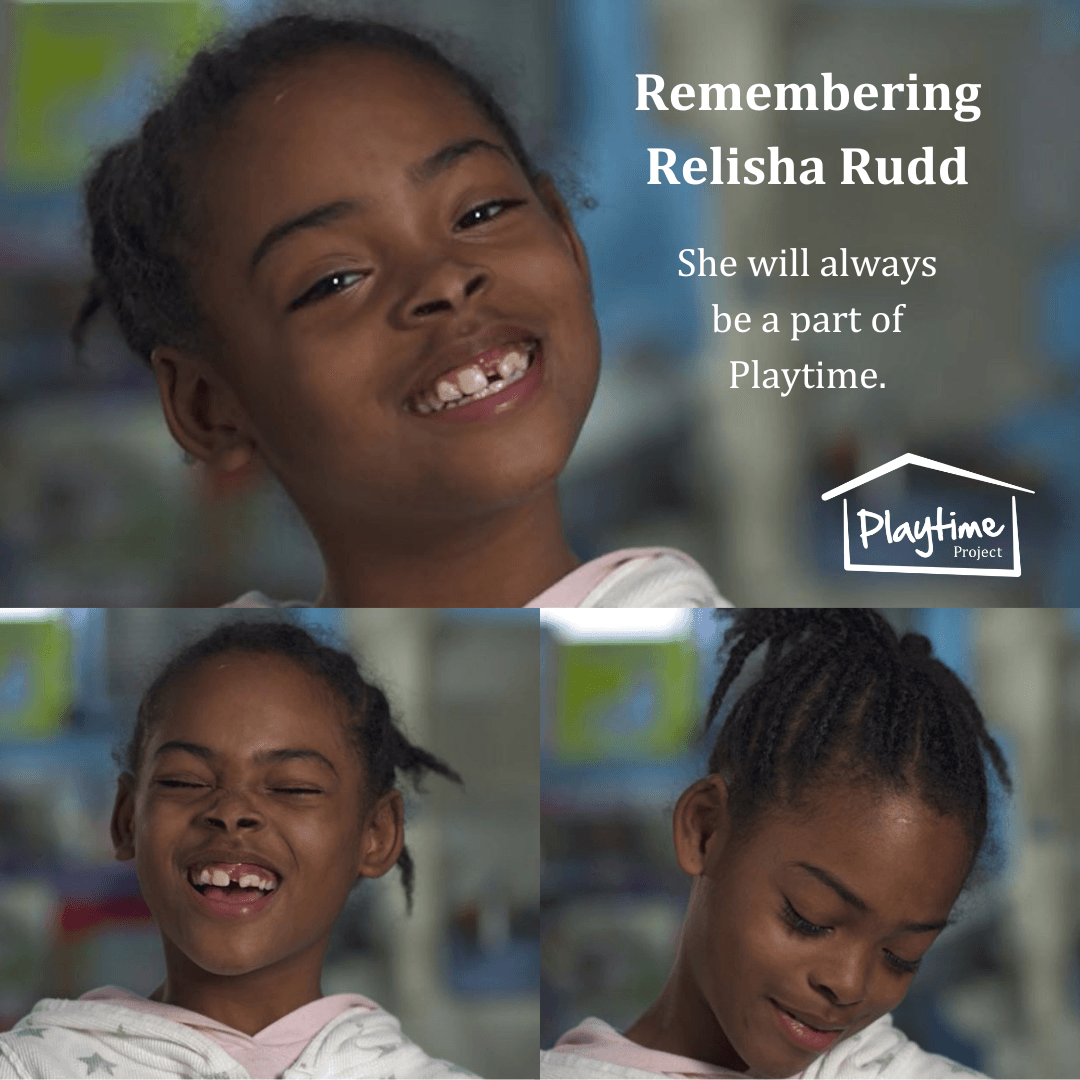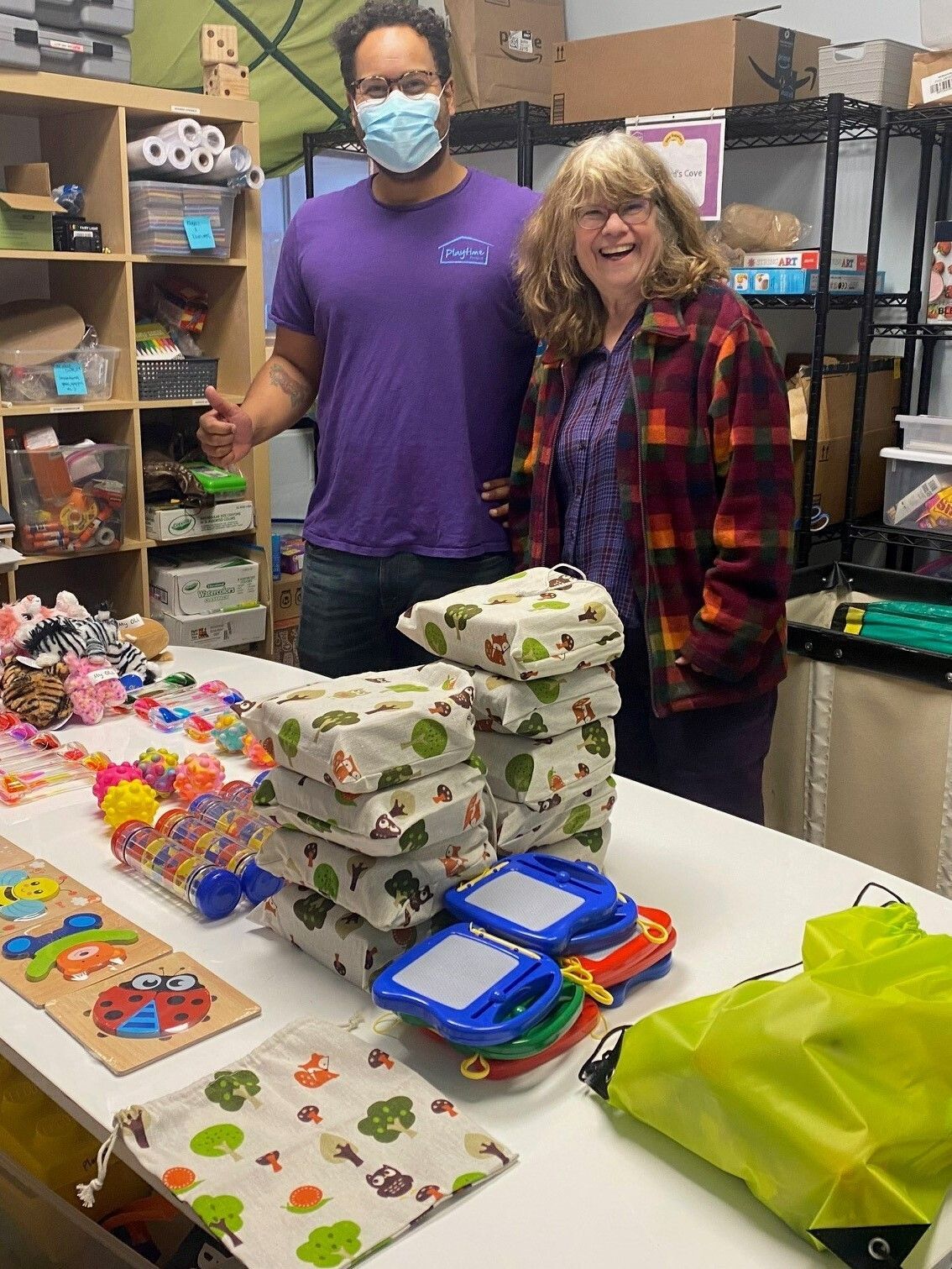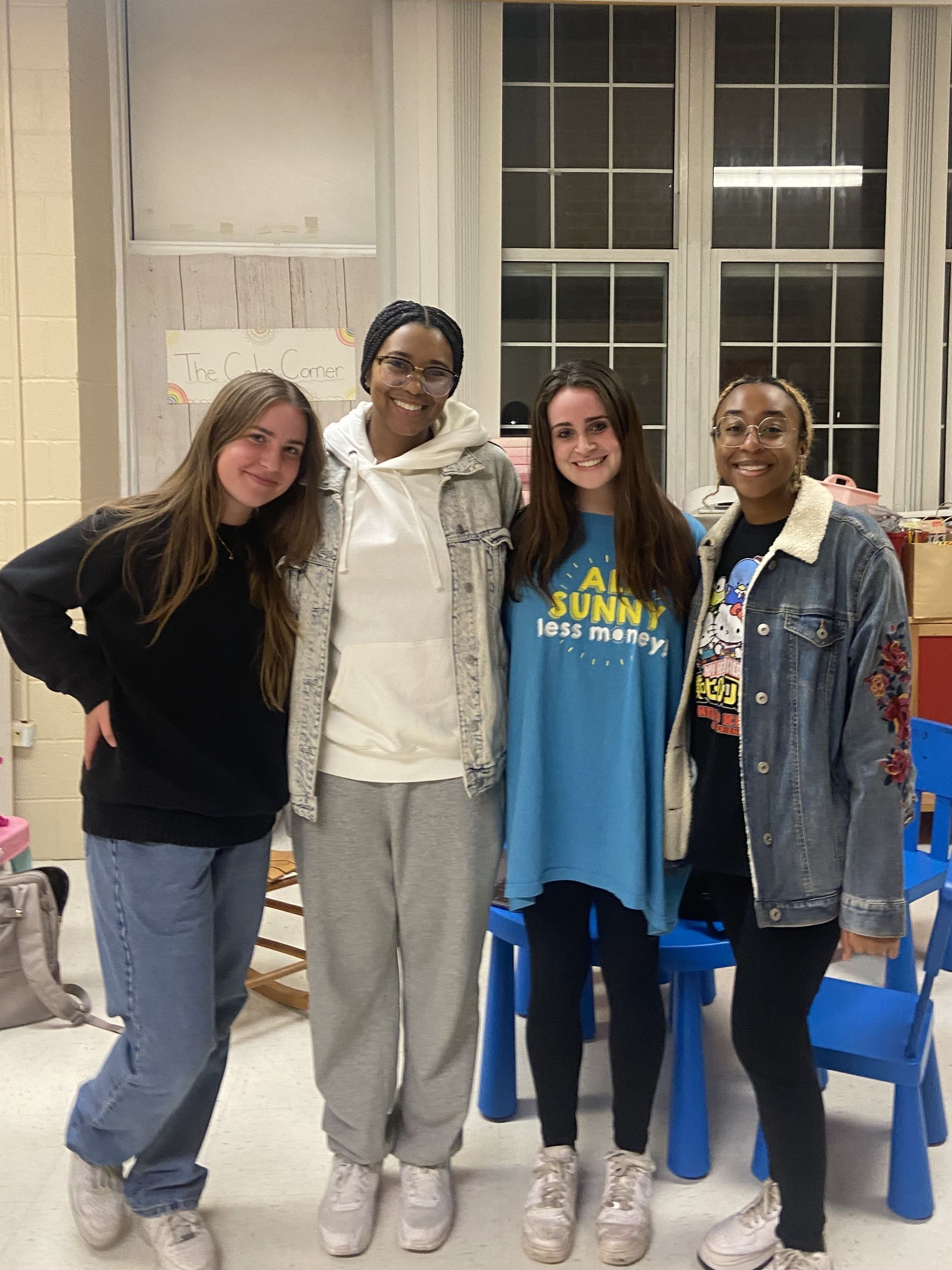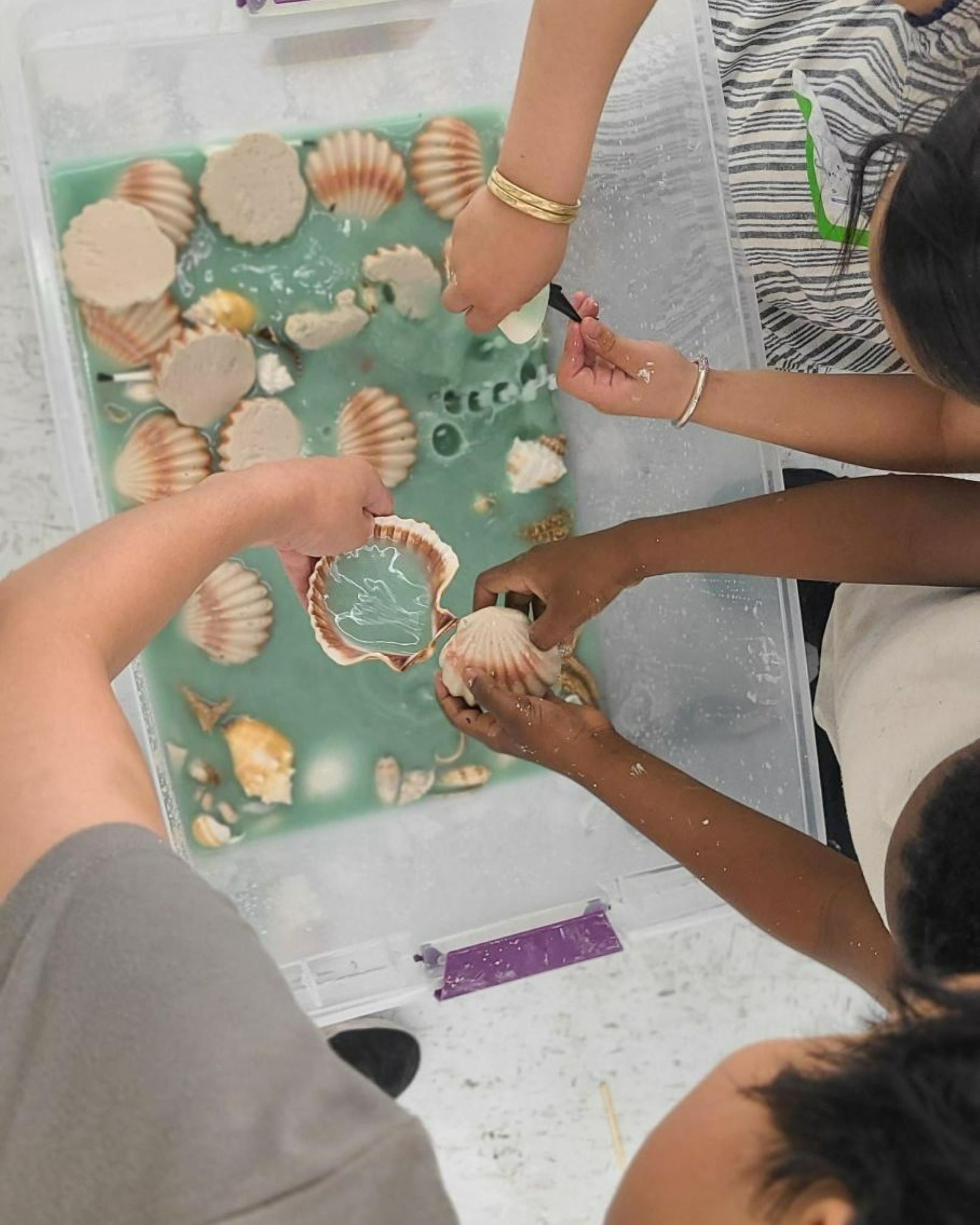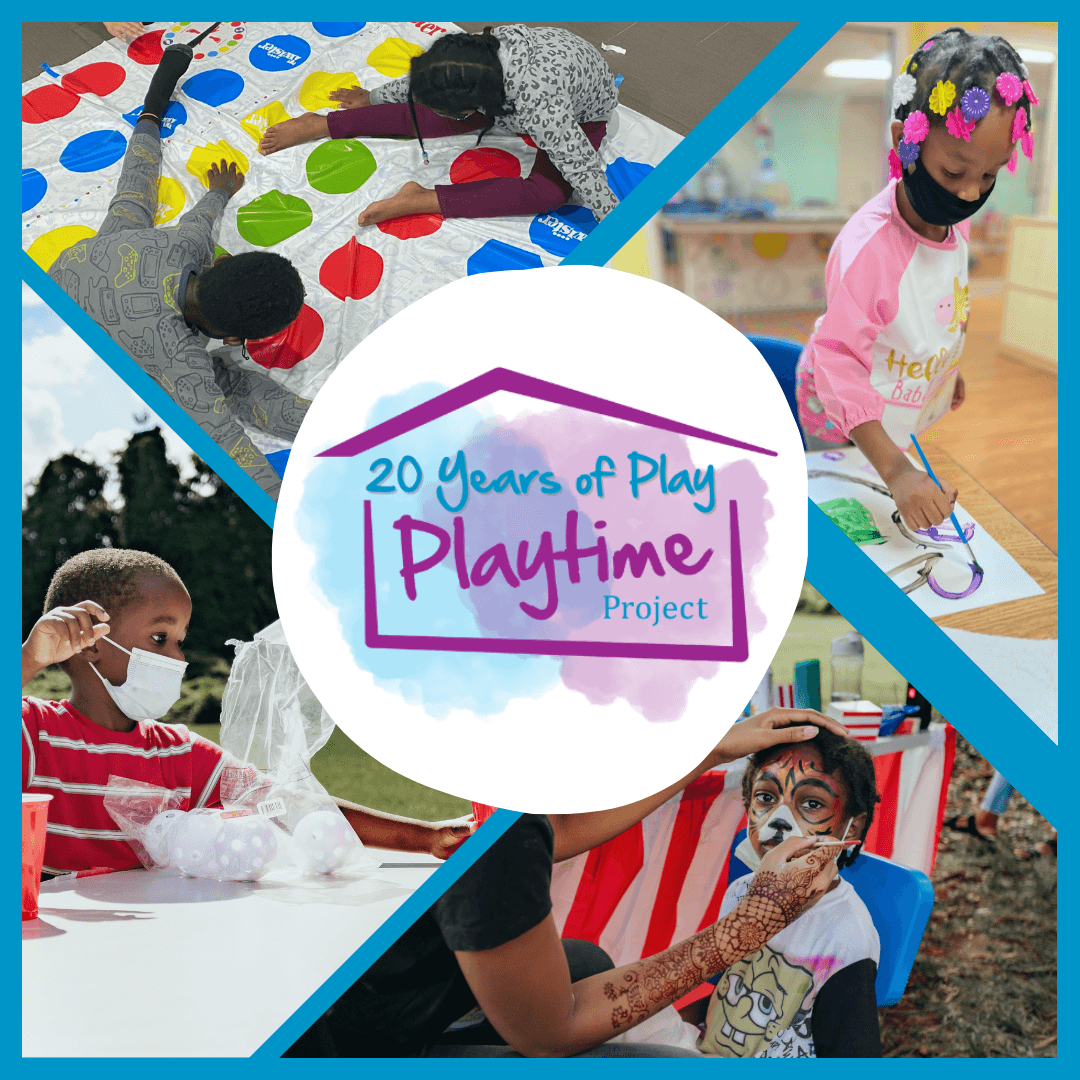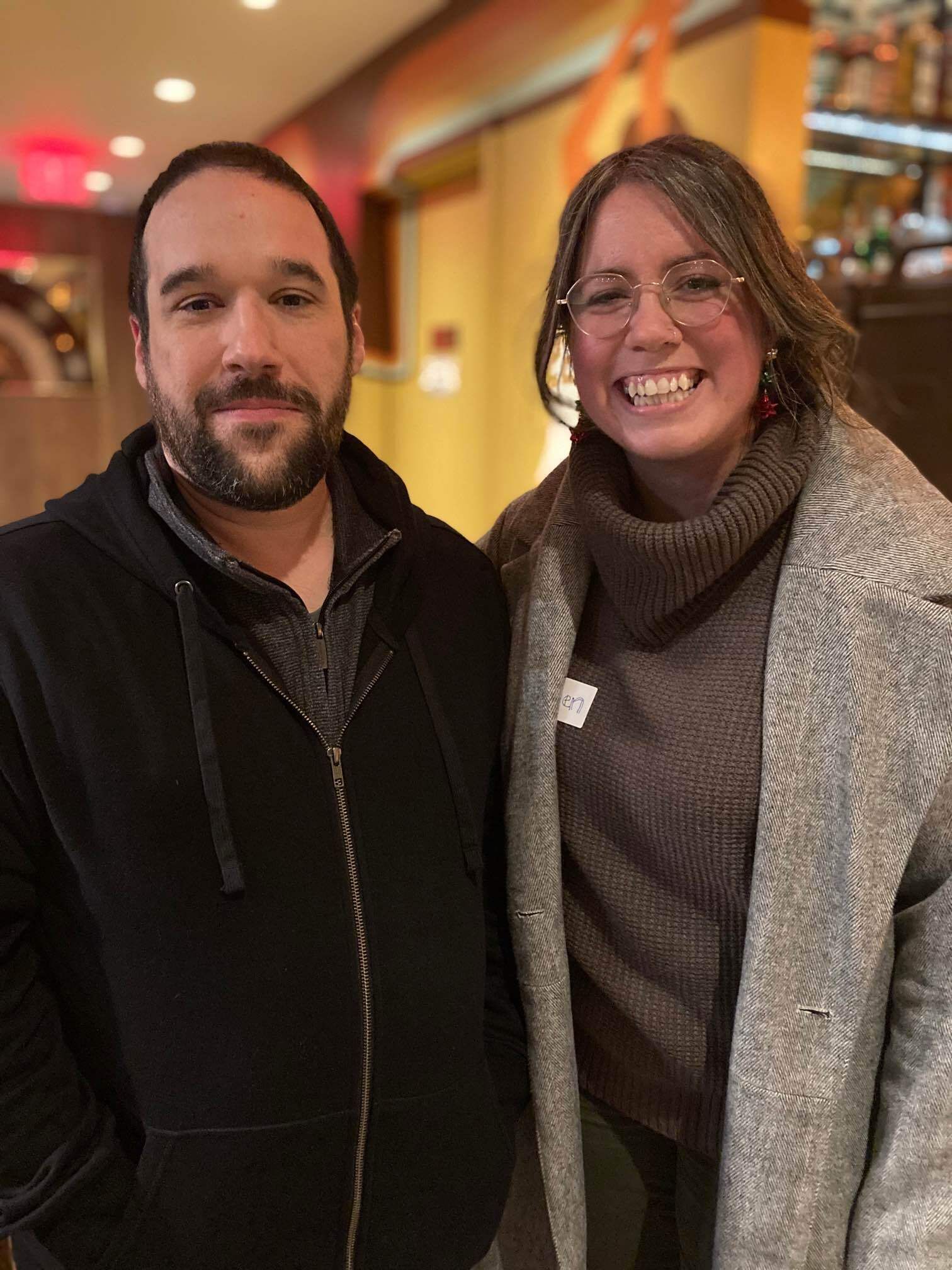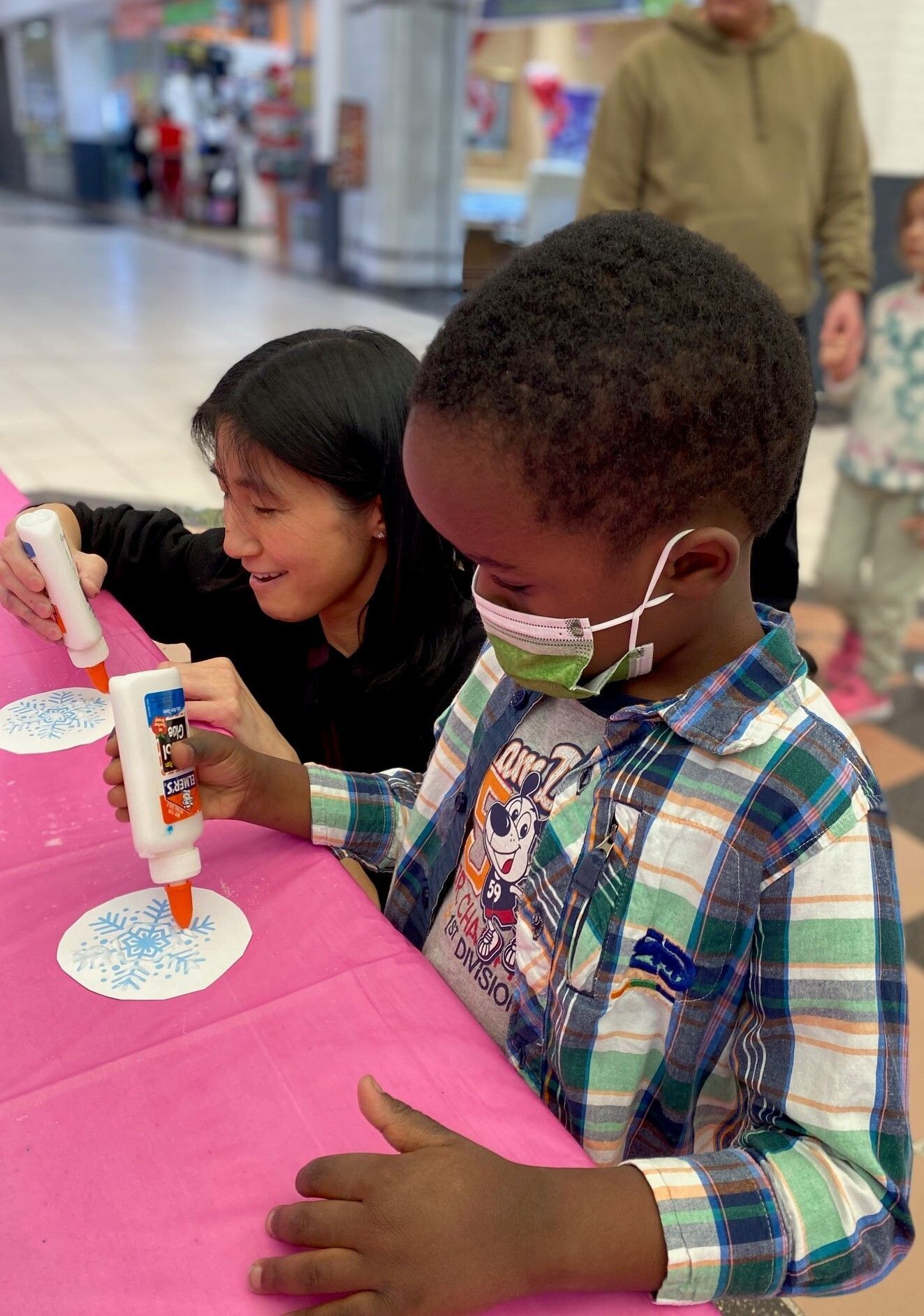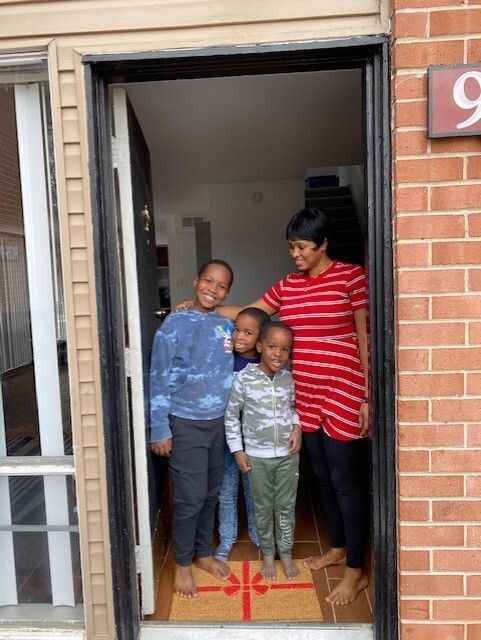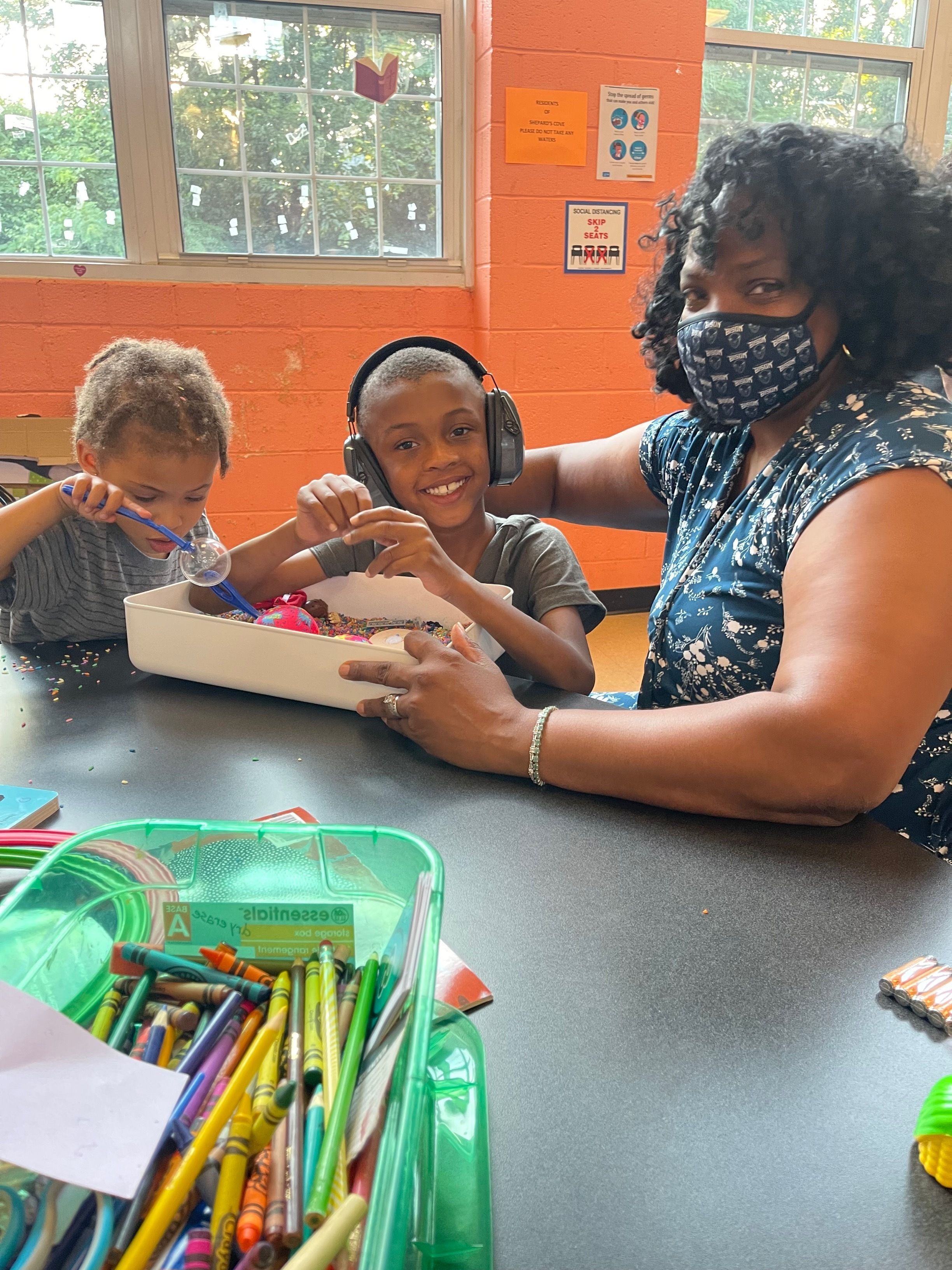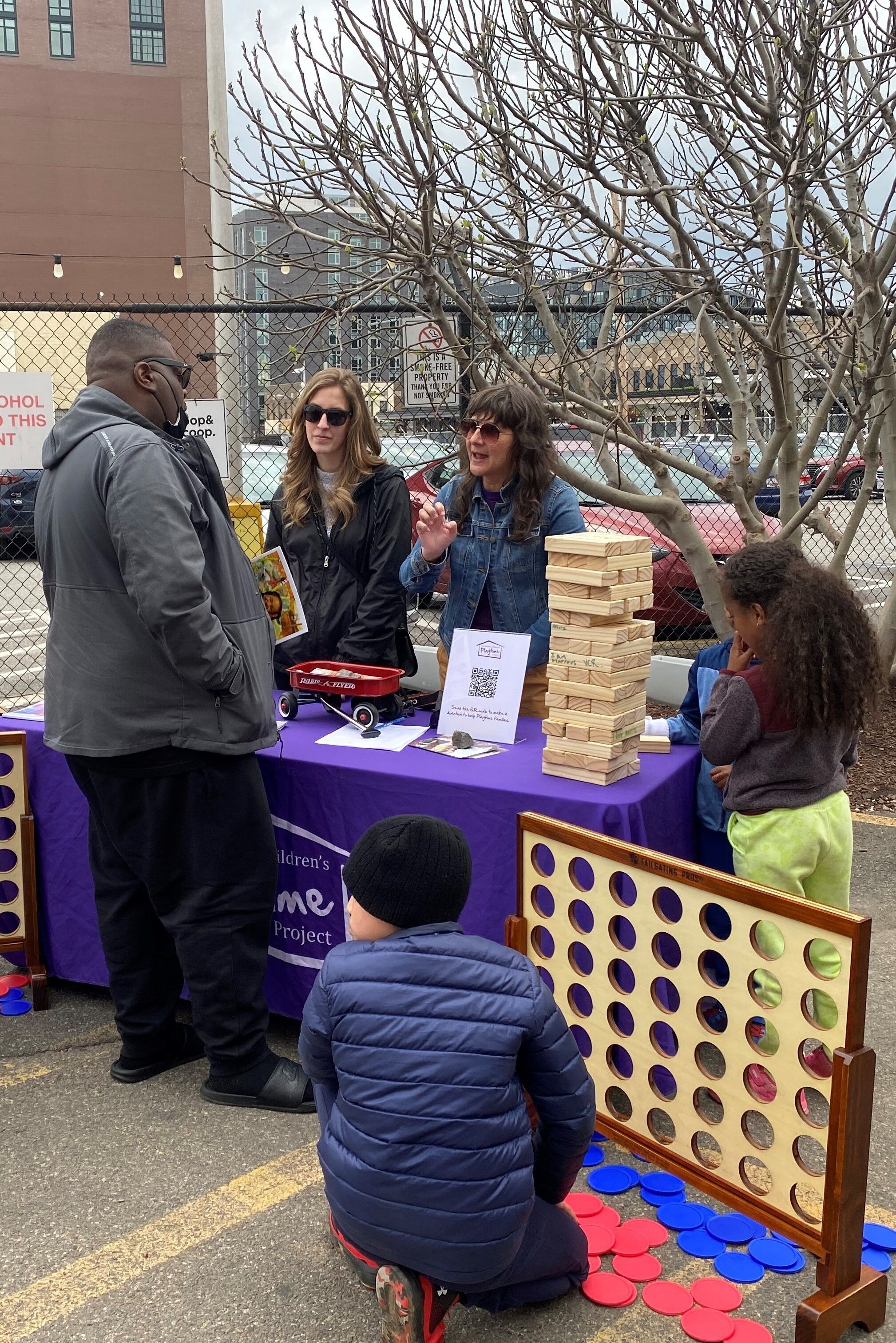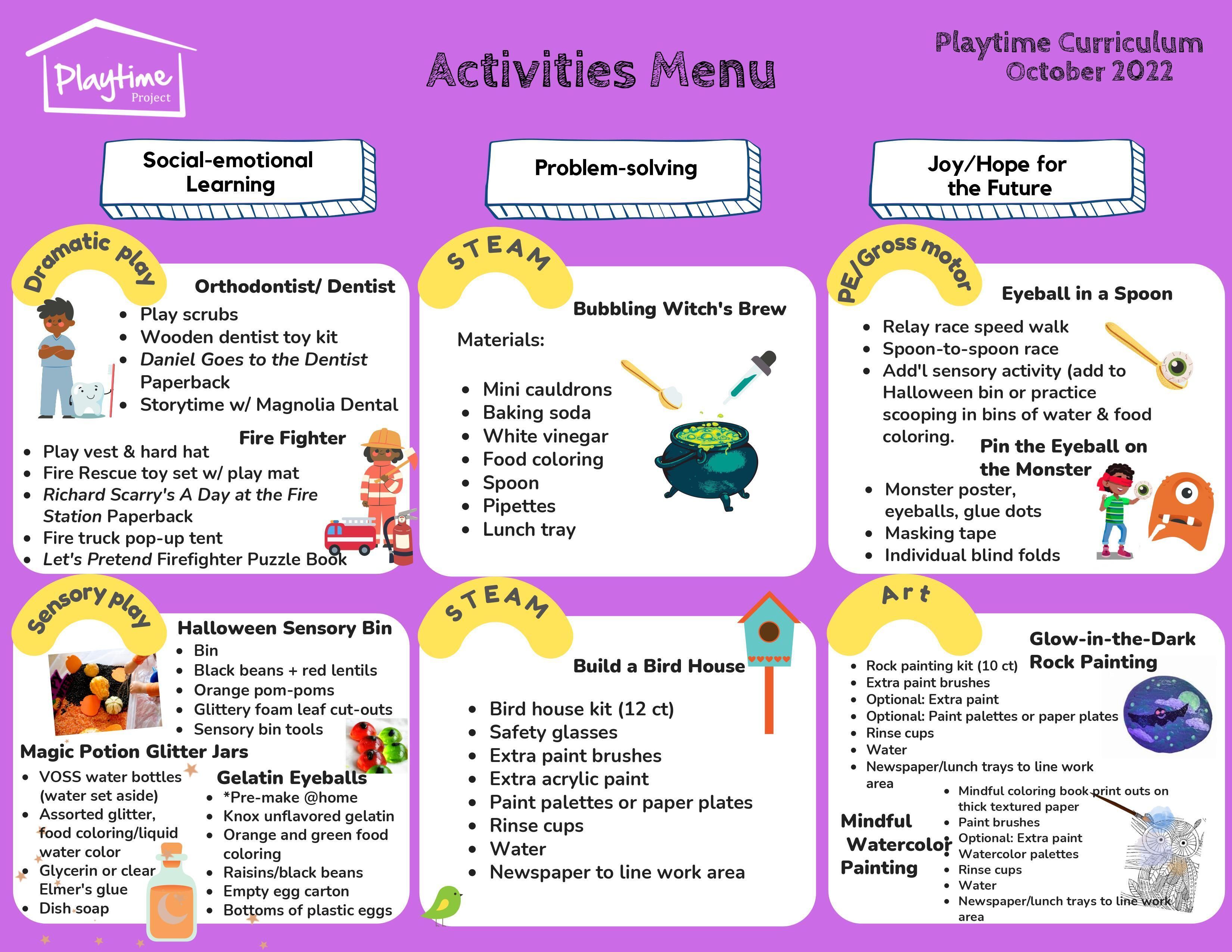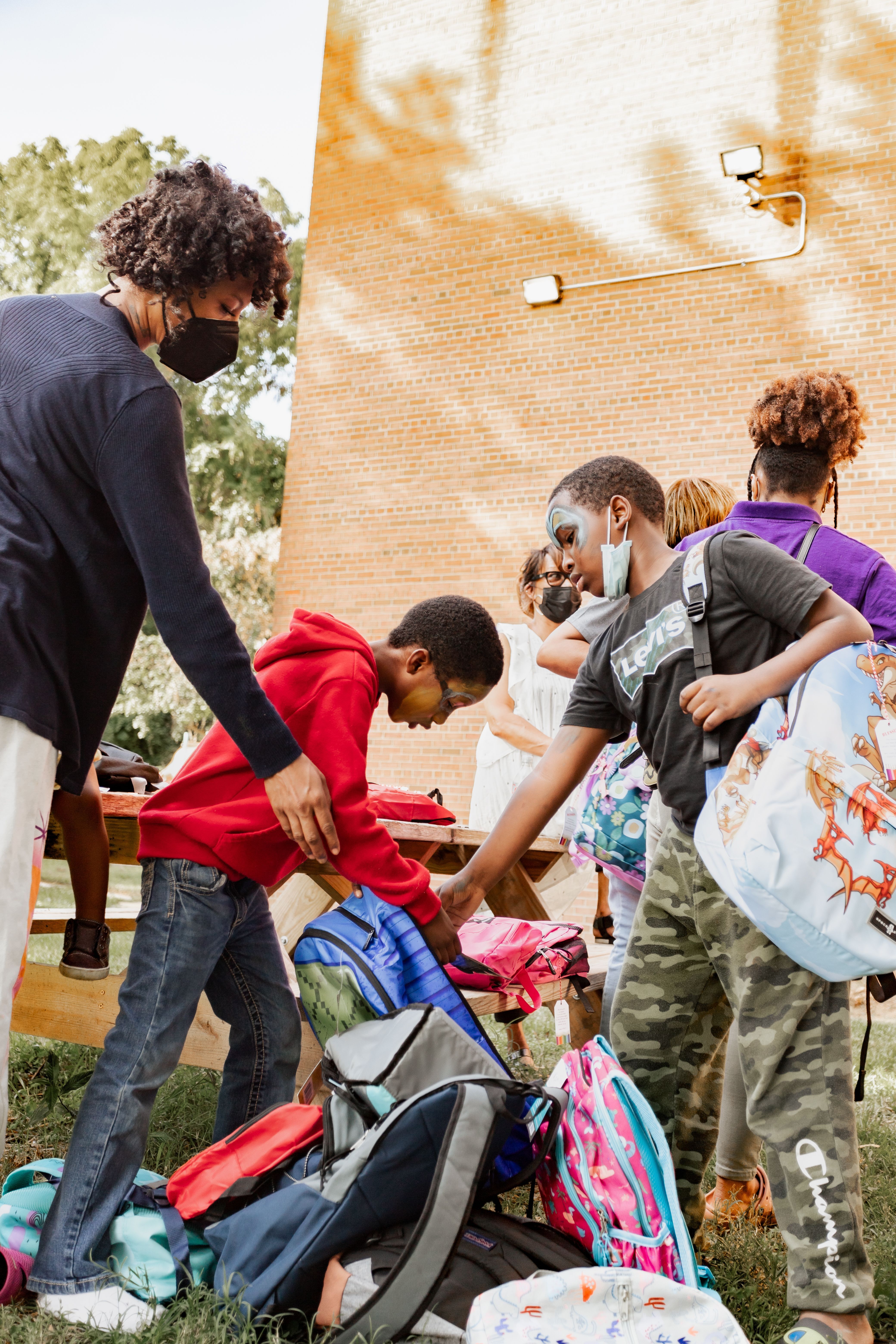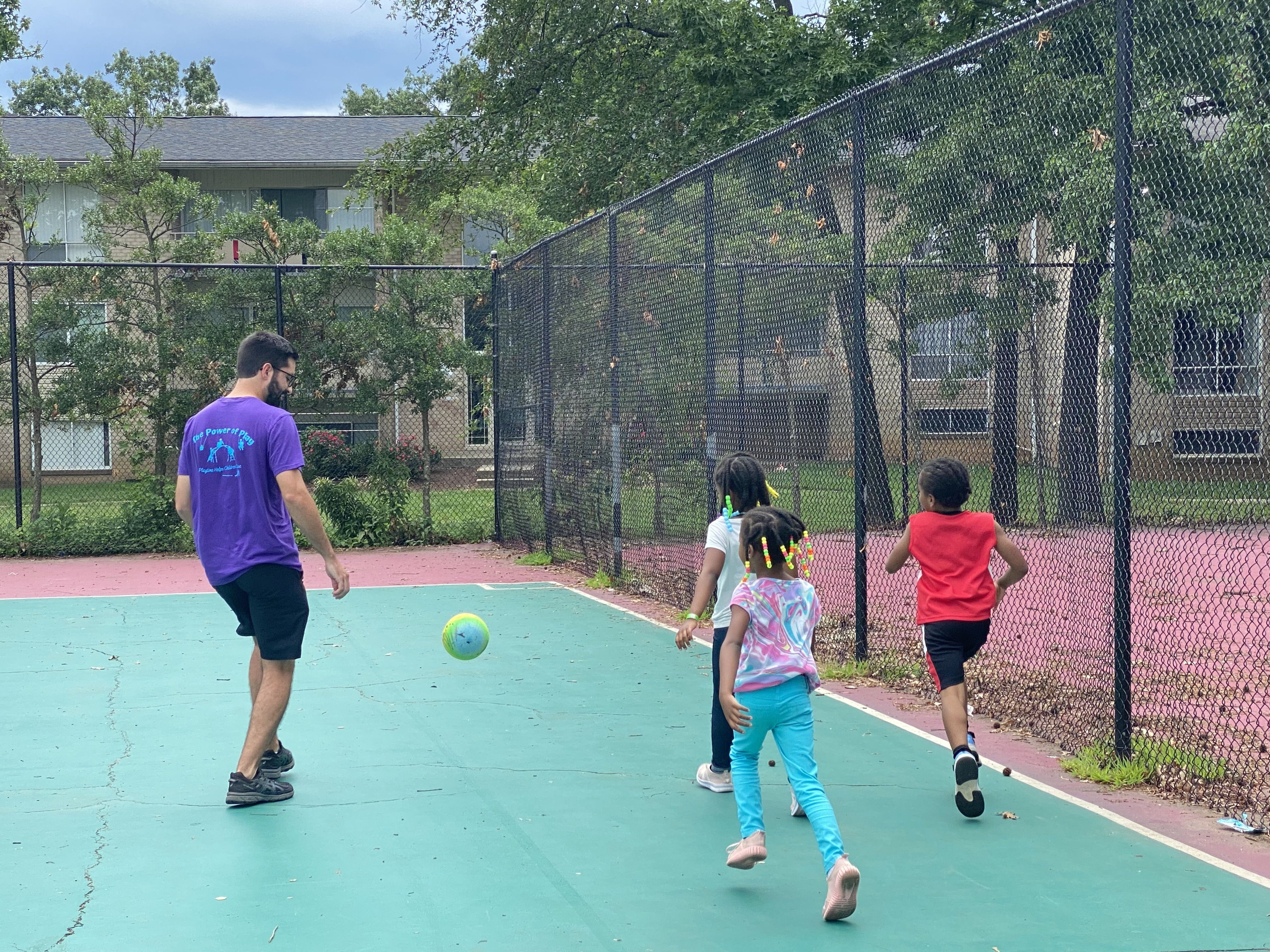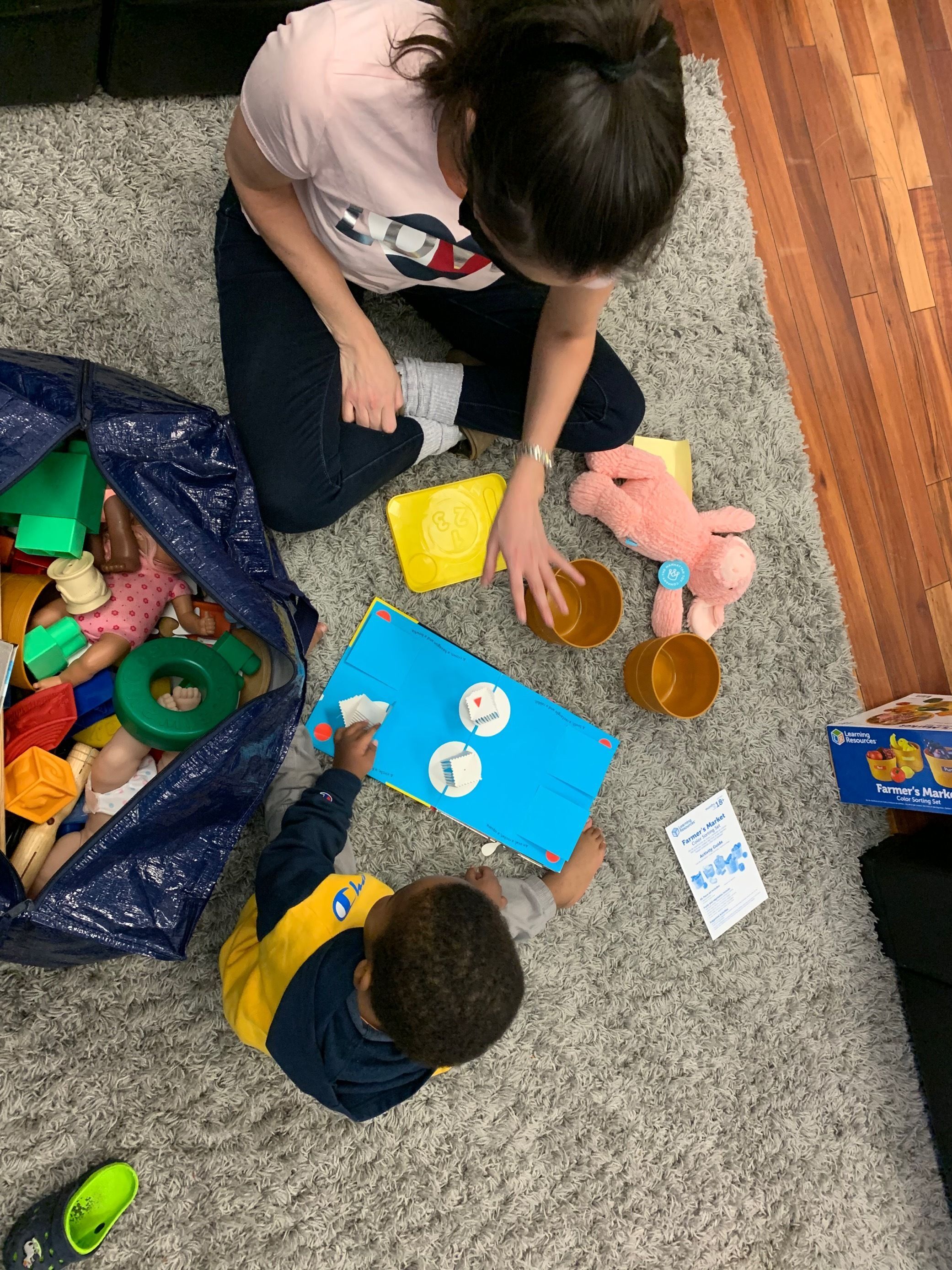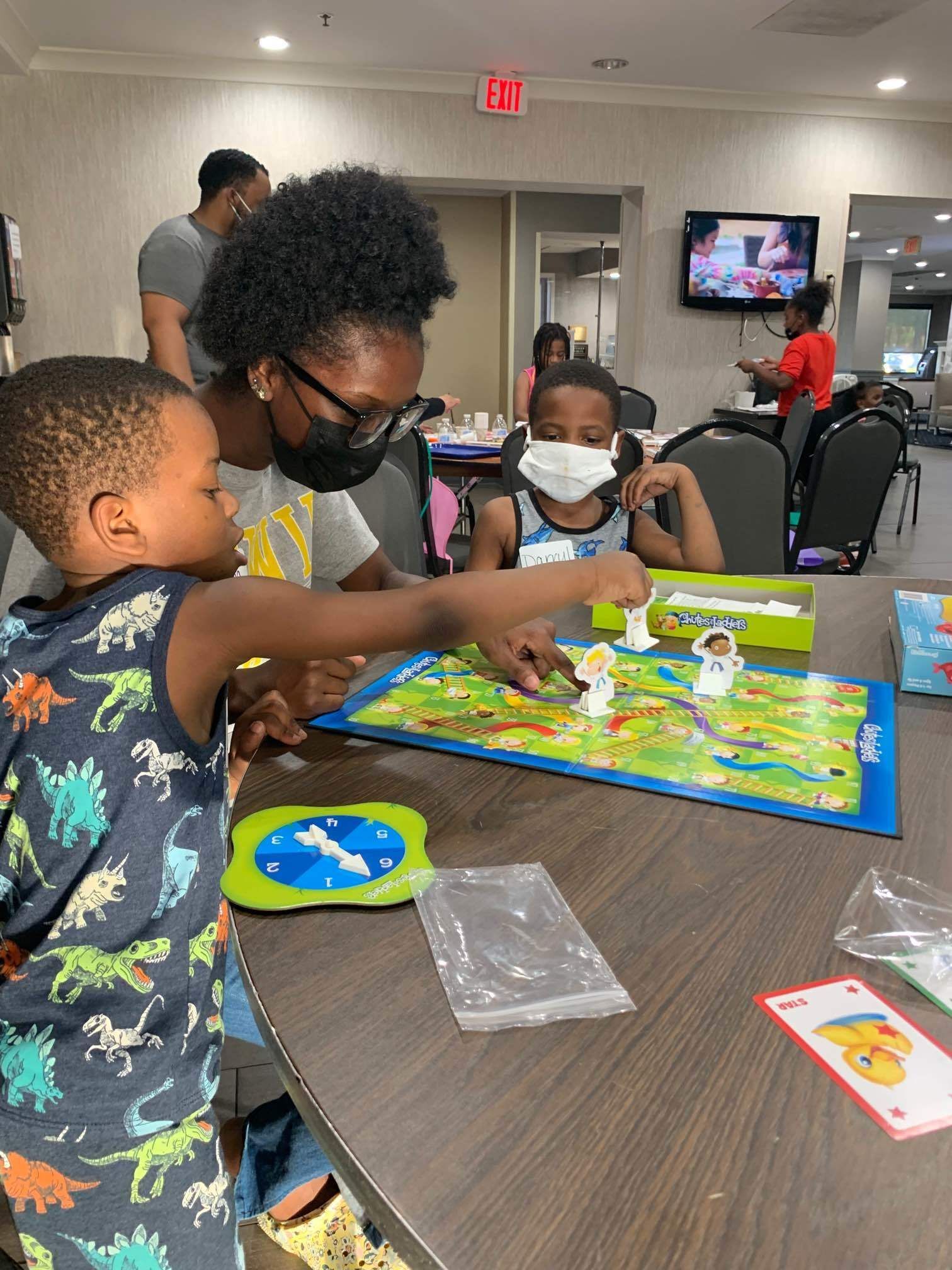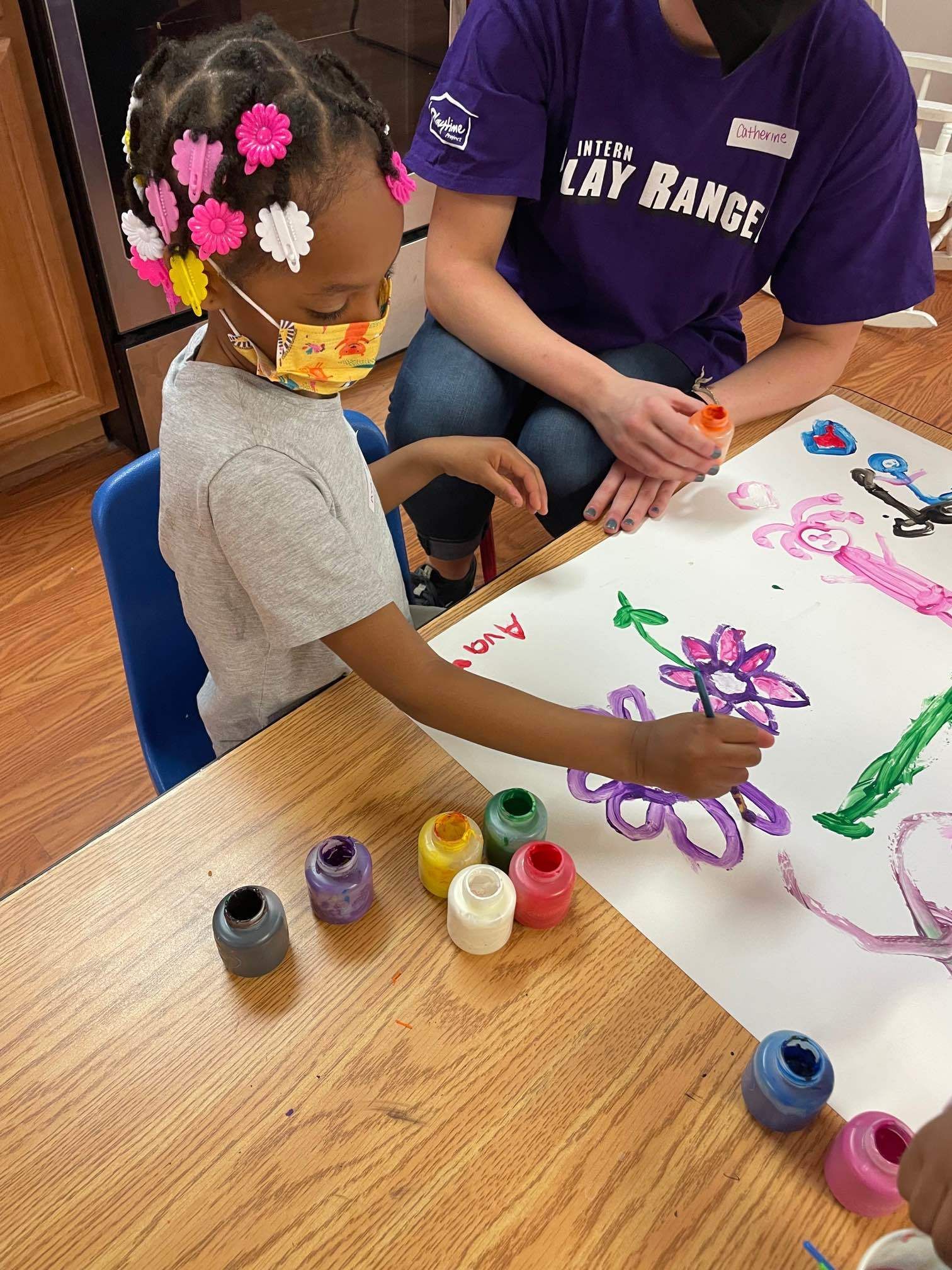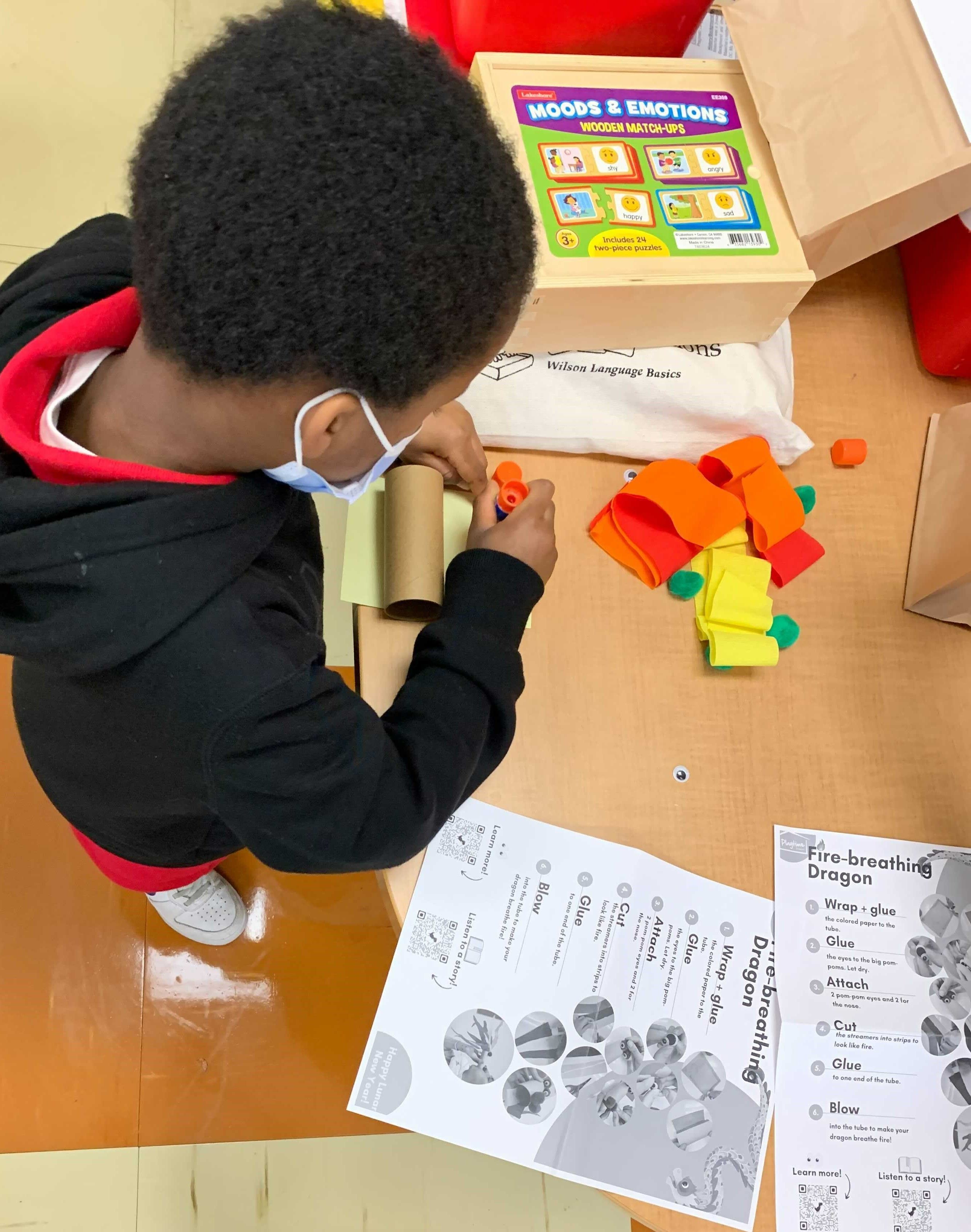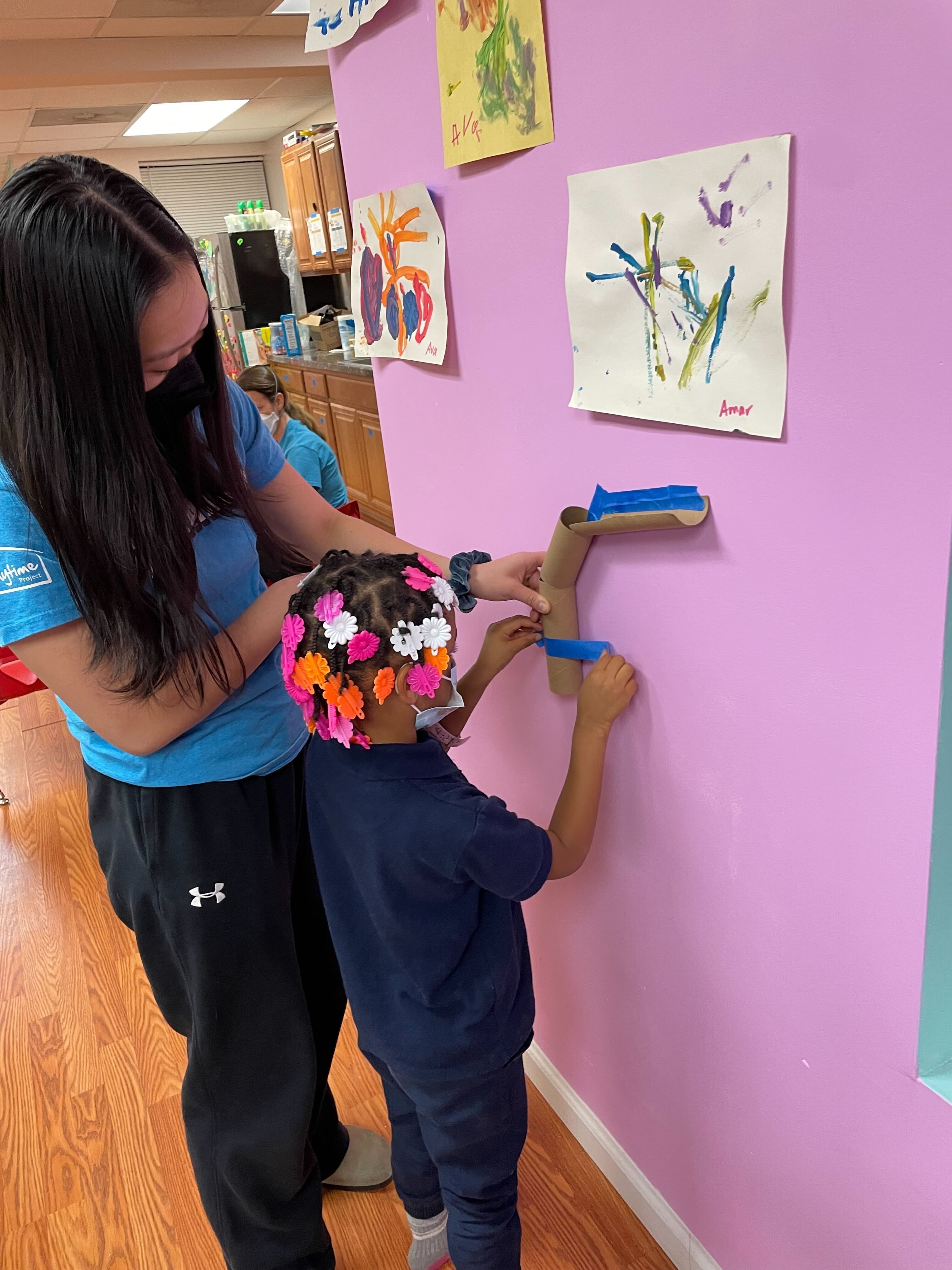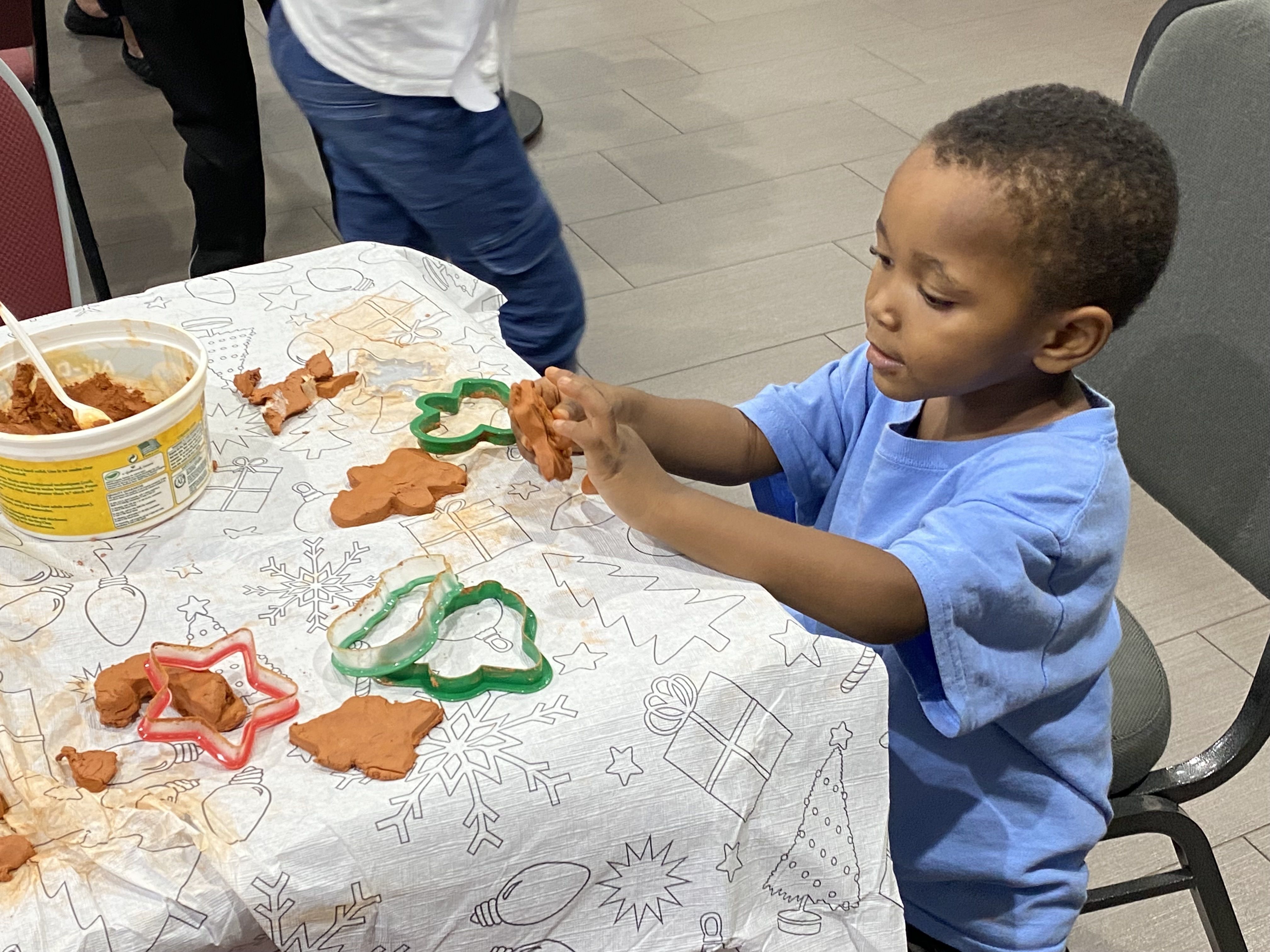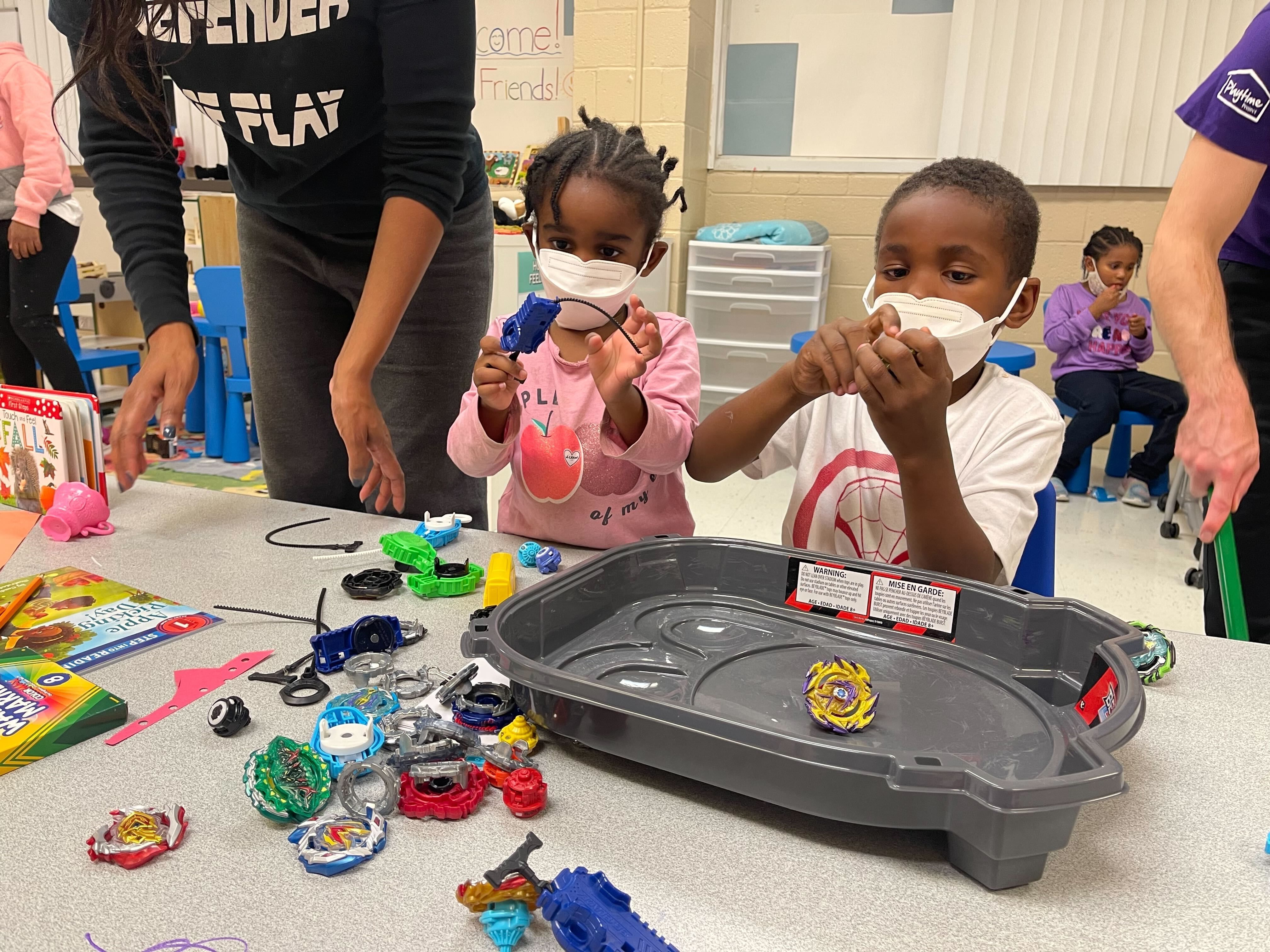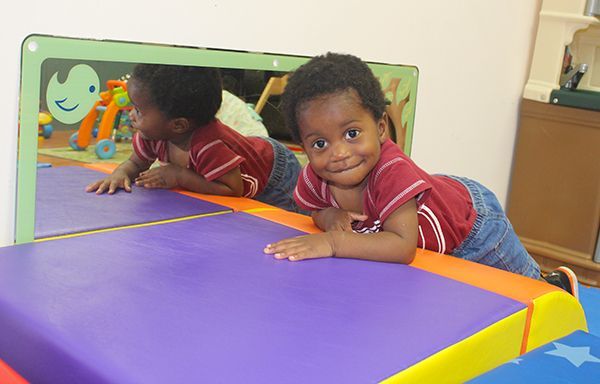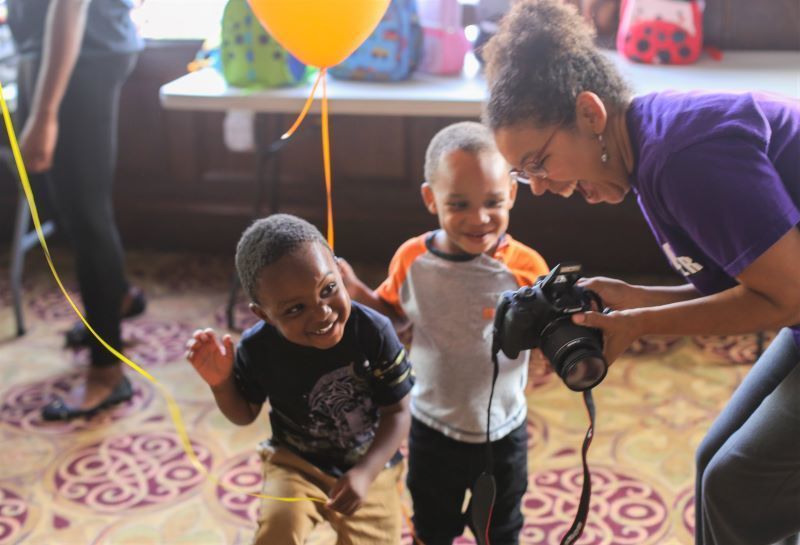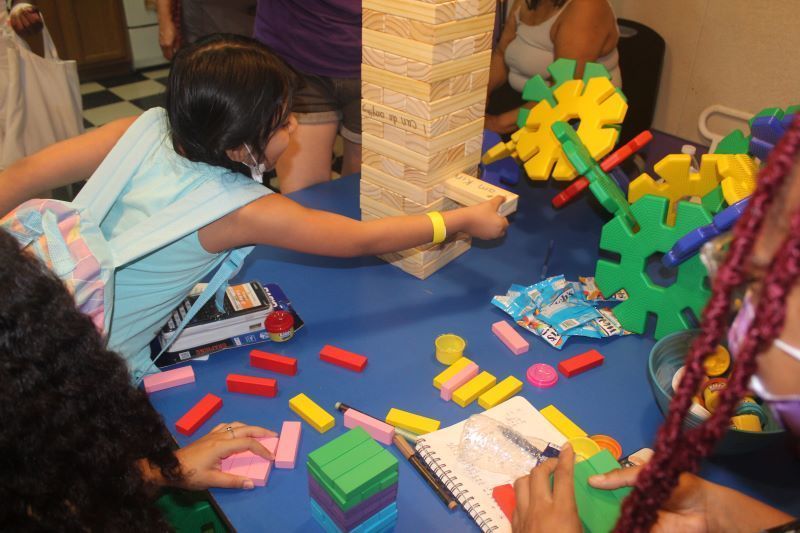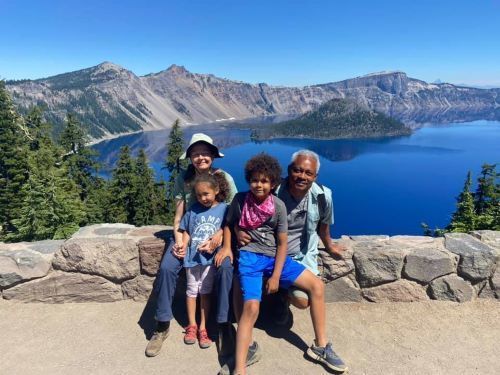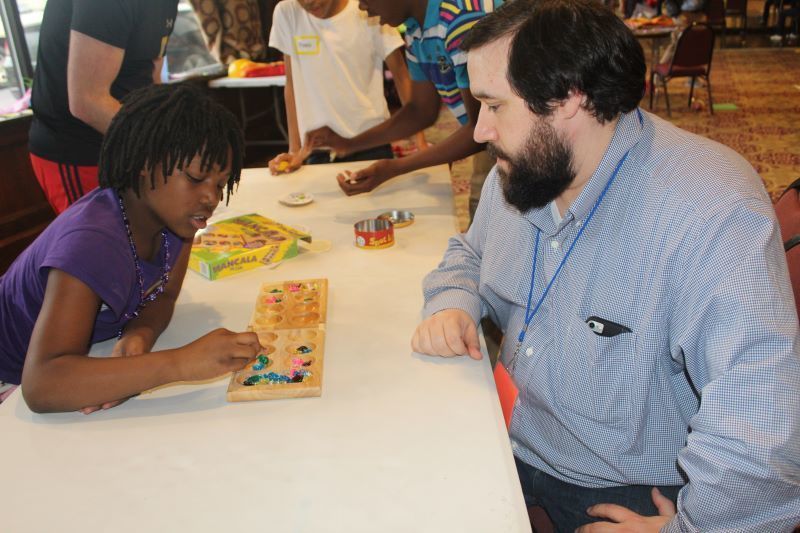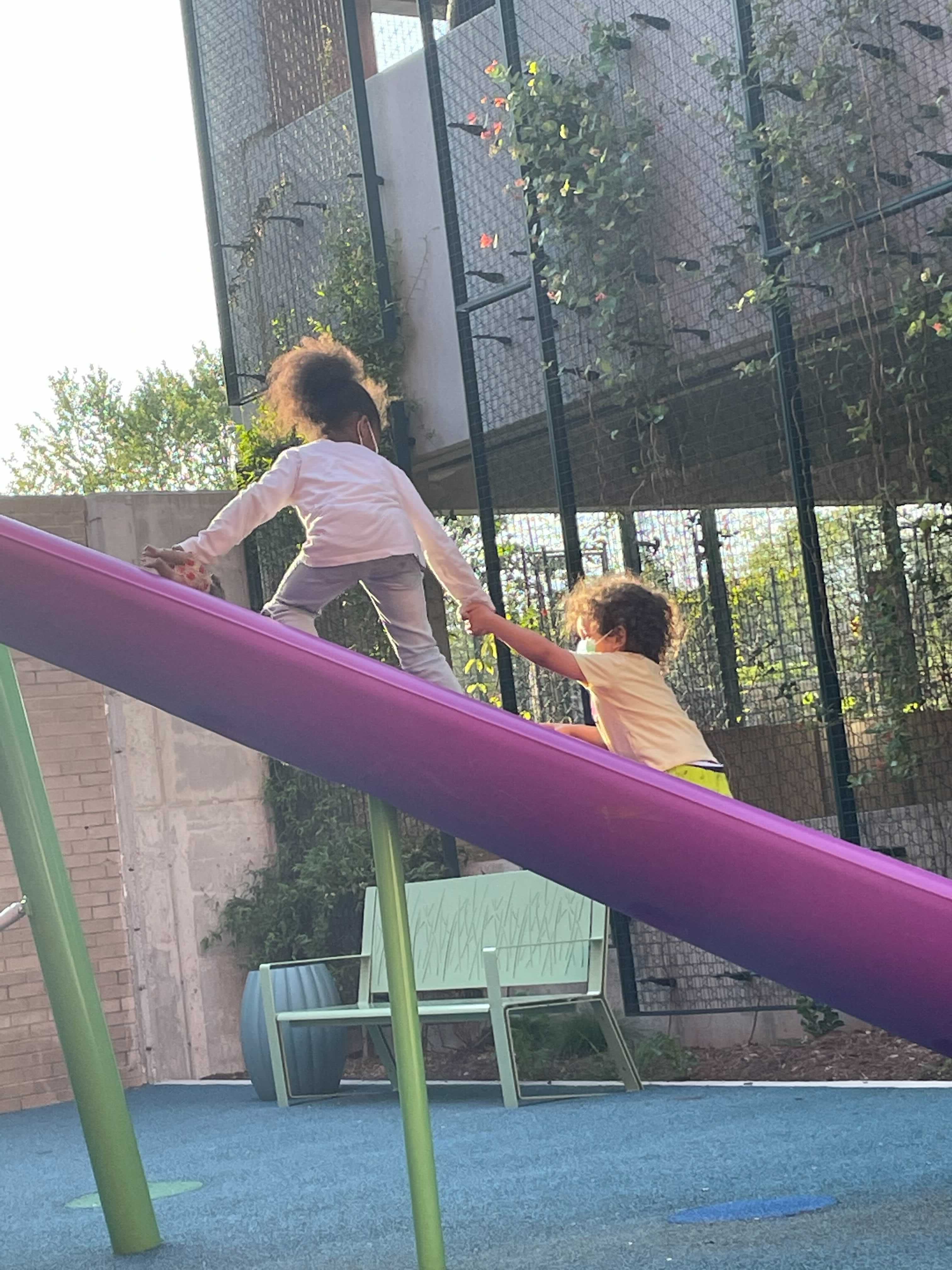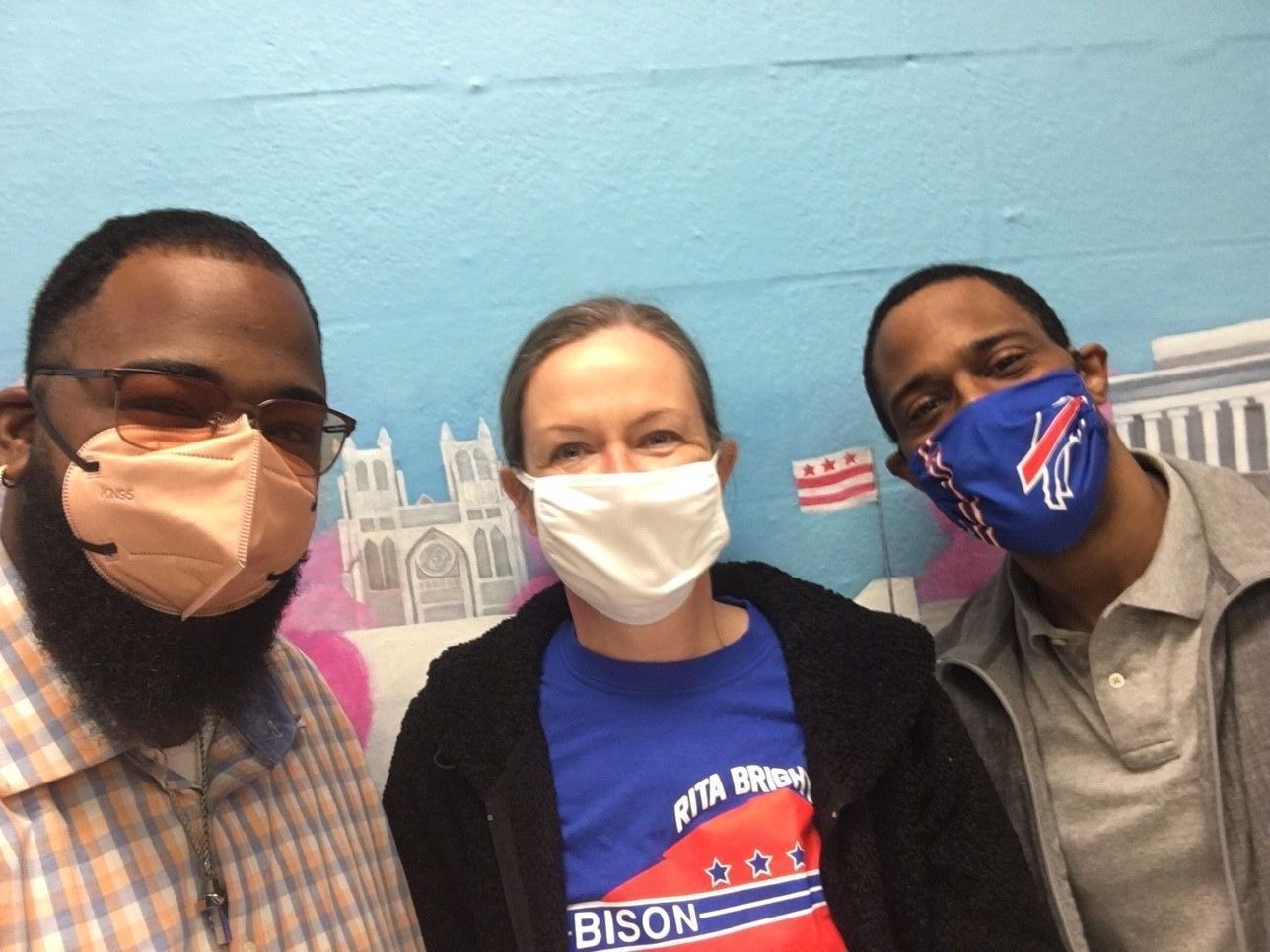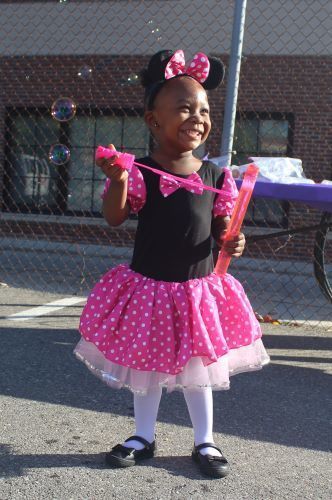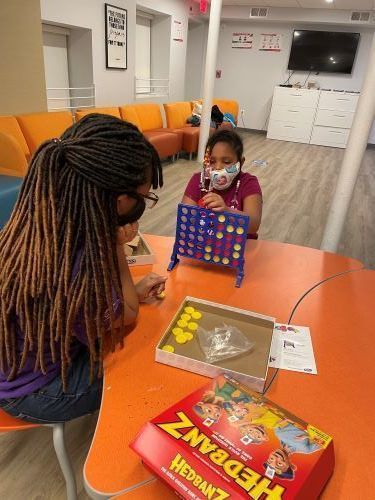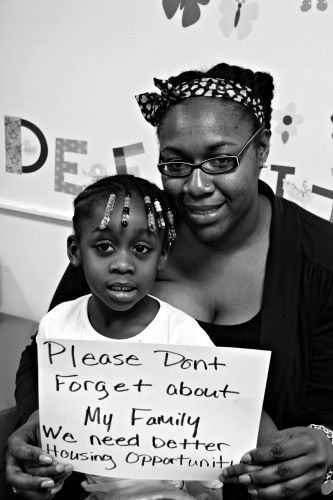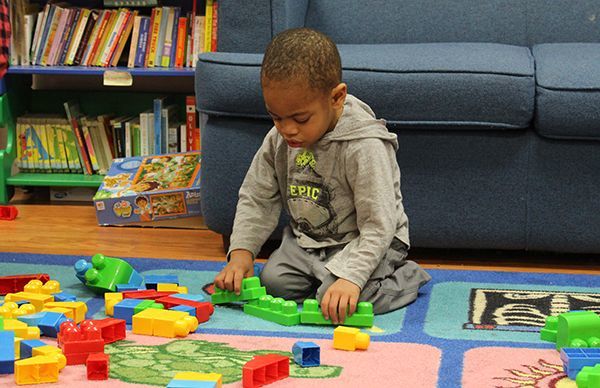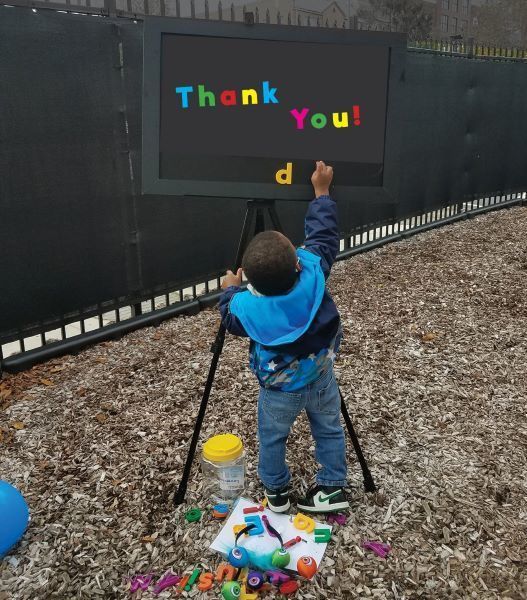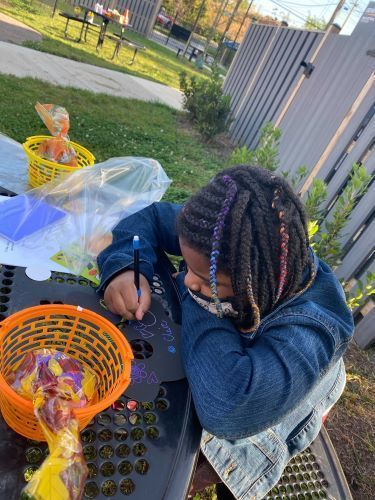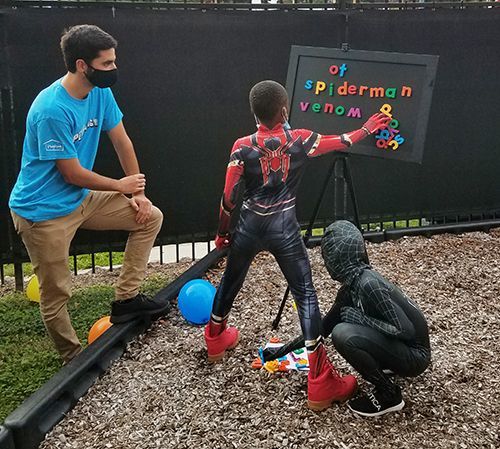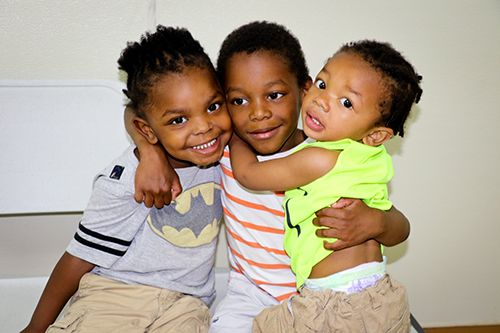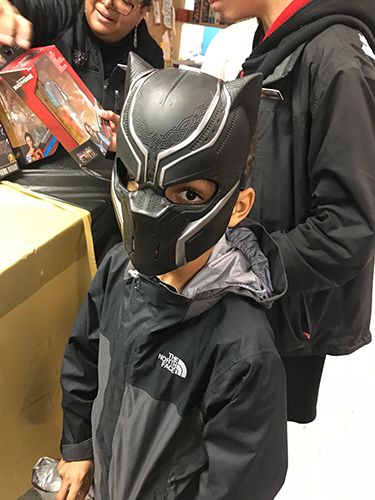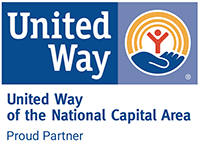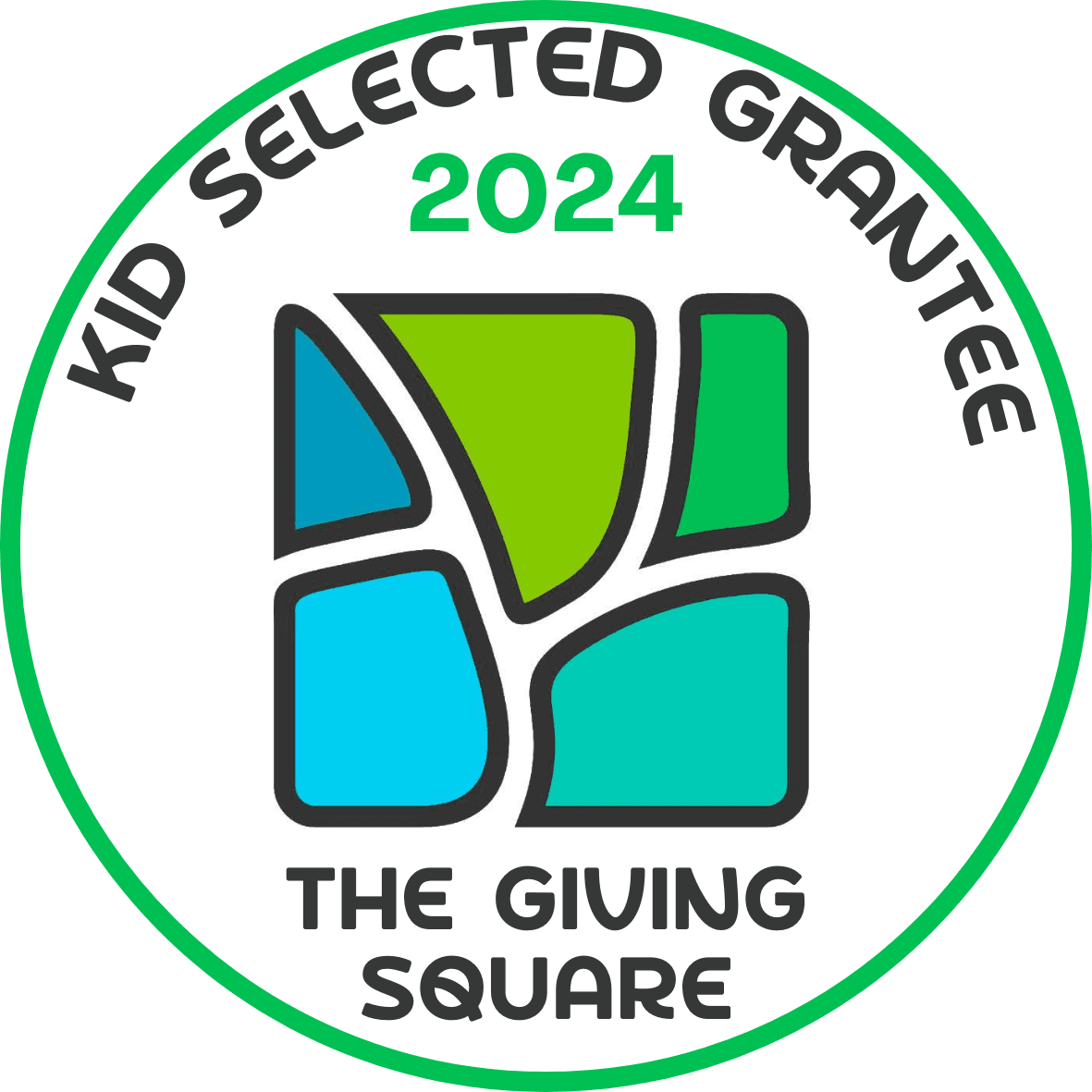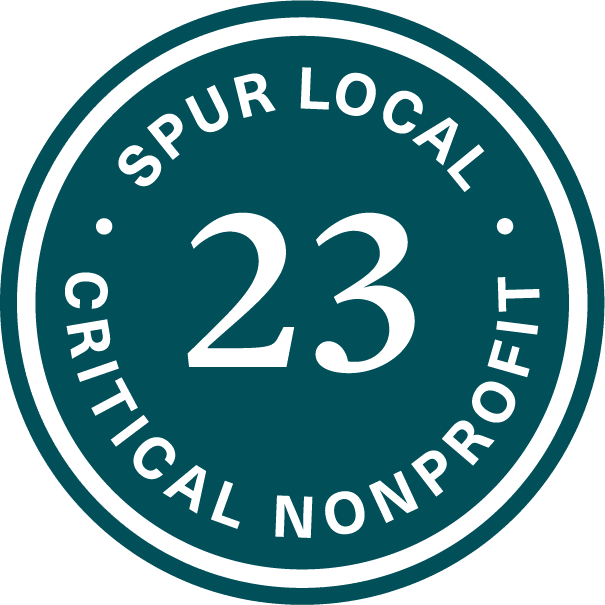Playtime Updates
Check out our latest updates on what's happening at Playtime:
We spoke with Playtime Project Play Ranger, Brian Summers, about his experience as a volunteer and what he has gained from bringing the power of play to children experiencing housing insecurity in Washington DC and Prince George's County.
2024 marks Playtime’s third year of offering play programs in Prince George’s County. Since launching our services here, we have learned a lot about the area, our site partners, and the needs of the participants we serve. This, in large part, has been due to the work of our very first Prince George’s County Program Manager, Bryanna Beamer. Over the years, she has prospected, problem-solved, and personally walked participants home from our programs in order to ensure our children were happy and safe. Now Bryanna is embarking on a new journey, and while we are sad for Playtime, we are delighted and excited for her. Before she left, we asked her to reflect on her time at Playtime.
We sat down with Playtime’s first community-based site partners in DC, Columbia Heights Village (CHV), which became a Playtime program site in 2023-24. CHV is an affordable housing complex where Cynthia Hall leads the Columbia Heights Village Tenants Association and one of the three nonprofit organizations that co-manage the complex.
Play is a natural part of being a child, but at Playtime Project we know there is a lot more to it. Our weekly play programs are guided by a comprehensive curriculum that is trauma-informed and supports our three domains of healing and learning. What are those domains and how do they prepare children for a healthy, happy, and stable future?
March 2024 marks 10 years since Relisha Rudd was abducted from the DC General Shelter. Playtime staff and volunteers got to know Relisha during Playtime programs for more than a year while her family was living at DC General. Despite the best efforts of the authorities, Black and Missing Foundation, the National Center for Missing and Exploited Children, Playtime and many others, Relisha has not been found. She will always be in our hearts and we will continue doing everything we can to keep her in people's minds. Current and former Playtime volunteers reflected on Relisha and how her abduction affected them and so many others in our community.
After 20 years of providing intentional, transformative play experiences to children experiencing housing insecurity and homelessness, Playtime Project has a lot to celebrate. Playtime's growth in 2023 illustrates how our hard work over the years has, and continues to, produce positive results. 2023 was a year of exciting growth. Here are a few of the year’s highlights.
January is Human Trafficking Prevention Month. During the month, organizations, agencies, and individuals raise awareness, educate, and advocate to prevent human trafficking in the United States. What does this have to do with Playtime Project, and the children and families we serve?
As Playtime Project’s 20th Anniversary year comes to a close, we would like to reflect on how much we have grown, how we have adapted to new challenges that arose, and how our commitment to children and families experiencing housing insecurity has remained our driving force.
As we enter the holiday season, Playtime is so grateful to have been reconnected with two former Playtime children who and are now college freshmen. Kamari Felton attends Frostburg State University and Nyla Slye is a student at Spelman College. Kamari and Nyla were enrolled in Playtime programs while living at the now-closed DC General homeless (DCG) shelter.
One of Playtime Project’s most exciting areas of growth has been its expansion into Prince George’s County, Maryland. Previously focused within the DC city limits, we saw the need for our services in the county and made it a priority to reach out. Now, in Playtime’s 20th year, we are serving children and families experiencing housing insecurity and homelessness at four program sites within Prince George’s County, accounting for half of our total programming.
For two and a half years, Kamari Felton was part of Playtime Project’s Teen Program at the now-closed DC General homeless shelter. We spoke with him just as he was getting ready to head off to his freshman year at Frostburg State University about his difficult journey to reach this major achievement.
Playtime Project just wrapped up two exciting weeks of summer camp, serving 32 children in our Washington, DC and Prince George’s County programs. Looking back, it's gratifying to see what the children have taken away from the experience. Here’s a snapshot of some of the many benefits we witnessed during Playtime’s Summer Camp last month.
In 2014, 8-year-old Relisha Rudd went missing from the now-closed DC General Family Shelter. She is still missing to this day. Systemic failures at multiple levels made this case a high-profile example of how too many children, particularly Black and brown children living with housing insecurity, fall through the cracks. July 11th has been designated Relisha Rudd Remembrance Day with the hope that she will be found. This year, she would be 17 years old.
In the summer of 2020, the COVID pandemic suddenly changed the way nonprofits, including Playtime Project, could deliver services. With our programming being so grounded in physical proximity, we were faced with a huge challenge – how to continue delivering consistent, quality play experiences to children experiencing housing insecurity who could no longer gather together to play. PlayKits became one of the solutions to this problem.
Playtime Project spoke with three of our Play Rangers who volunteer along with seven other University of Maryland Psychology Department students. Read about their experiences as volunteers.
During the first week of April, Playtime Project held its first week-long Spring Break Camp serving children experiencing housing insecurity in Prince George's County. We sat down with our Prince George’s County Program Manager, Bryanna Beamer, to find out more.
For twenty years, Homeless Children’s Playtime Project has brought play to children experiencing family housing insecurity. On this 20th anniversary, Playtime Project is evolving with the landscape of housing insecurity, and our updated name and mission statement reflect that.
Meet Jason Wucinski, longtime Playtime Project volunteer. We interviewed Jason about his work with Playtime and what drives him to dedicate his time to providing meaningful play opportunities for children experiencing housing insecurity in the Washington DC area.
Inclusive environments allow children from all backgrounds to feel safe, and the ability to express oneself freely is essential for self-confidence. A month and a half into 2023 programming, we’re observing the children feel the safety of Playtime's physical boundaries—whether it’s a playroom, a school auditorium, or a conference space. In large part, this is due to the positive energy and warmth that our staff and volunteers bring to each site, through their attitudes and activities, as well as the accepting spirit of the children who play with us. Keep reading for their stories.
As we head into 2023, Playtime celebrates 20 years of ensuring children have access to the healing power of play, regardless of their housing status. Can you believe it?
If you have been with us from the start, you will remember an organization assembled with a small-but-mighty band of volunteers ready to serve. Through the years, our volunteer numbers have grown, staff were brought on, and programs were added and adapted, all to expand our reach and impact. We’ve weathered the changing landscapes of family homelessness, the ongoing pandemic, and systemic injustices that create barriers to a family’s safety and stability. Though the world around us will continue to shift and change, as we look ahead to our 20th year, one thing remains the same: our commitment to play and to our families. We know that play is essential in developing strong, resilient, self-assured kids. In 2023, we will focus on maintaining our excellent play programs, as well as helping our children and families achieve success beyond the shelter.
Playtime aims to create an inclusive environment for all children, no matter their developmental stage or special needs. Staff and volunteers were and are committed to ensuring Thomas, and other children like him, are able and comfortable participating in all activities in the playroom. We know that play helps children understand the world around them and heals them from stress, anxiety, and trauma. We also know that play allows children to explore new themes, express different emotions, problem-solve, develop social skills, and ignite creativity.
After almost four years at Playtime, leaving is bittersweet, and I am overcome by a sense of gratitude. I have had the honor of watching the Playtime community—YOU, Playtime’s staff and volunteers, our board, partners across the region—come together and ensure children experiencing homelessness and housing insecurity continue to be served under the most extreme circumstances. The network of caring individuals, in all their various work, family, and neighborhood groups, is what makes Playtime possible. Thank you for your inspiring generosity.
Playtime’s dynamic curriculum engages with and builds off children’s current interests, with the goal of strengthening three outcomes for children aligned with resilience: increasing their problem-solving skills, social-emotional learning skills, and optimism for the future.
Our goal is to be a reliable presence for Playtime children and families, especially during times of high need, like back-to-school time. Playtime’s support extends beyond the playrooms, and we could not pilot new community-based programs like “Pop-Up” Family Playtime events and Playtime Summer Camp without the support of our generous community.
Playtime’s community-based Summer Camp provides a continuum of care for Playtime children. Children are now able to feel the consistent presence and support of Playtime staff and volunteers both inside the shelter and out in the community.
Playtime is fortunate to have over 150 volunteers who dedicate their time to our weekly programs. They show up to our playrooms every week to support positive emotional development for one of the most vulnerable populations in the District and Prince George’s County. Our volunteers make a weekly commitment to running one of our six play programs at our partner sites, and we could not provide Playtime without them.
It’s always good news when families move out of shelters and into their own homes, but it is important to recognize the sense of community families create while living in transitional spaces. Having access to coordinated case management and circles of support is essential to making sure families have allies during this transition period.
Playtime is committed to supporting families and their mental health.
Playtime testified at the DC Department of Human Services budget hearing before the D.C. City Council. We asked council members to focus on prevention of the cycle of family homelessness in D.C.’s homeless services continuum. The city must provide comprehensive case management for children who have experienced homelessness, increasing their access to essential education, health, and basic services, and decreasing their chances of experiencing homelessness as older youth or adults.
The COVID-19 pandemic has transformed our society in profound ways, often exacerbating social and economic inequalities in its wake. While students have demonstrated resiliency and tenacity to continue their education throughout the pandemic, many parents are concerned about COVID learning loss and pandemic school push-out.
Playtime's curriculum is a research-based “living” framework that adapts to meet our children’s needs. Meet Lan Nguyen, our curriculum and impact specialist, who is responsible for implementing Playtime's dynamic curriculum.
Playtime was able to make an impact by serving 315 children and their families in 2021 because of you. The outpouring of support from so many of you was both overwhelming and humbling.
When the landscape of family homelessness began to change in the District of Columbia, Playtime knew we had to adapt in order to continue to follow the children wherever they are. As families facing housing insecurity are often pushed out of expensive D.C. to surrounding suburbs, one of the most logical places for Playtime to expand to was next door Prince George's County, Maryland.
With Playtime’s families and partners, our long-term goal is to break the cycle of family homelessness, making sure all children have the opportunity to play, learn, and grow in safe spaces.
I will miss the smiles, the giggles, and countless inquisitive faces peering back at me through the camera’s lens. Each picture brings back memories of the children posing, frowning, grinning, or completely oblivious to the camera.
Starting September, Playtime will become a partner with J.C. Nalle Elementary School in Ward 7 to provide play programming and resources twice a week!
Homelessness never takes a vacation and going on a trip is a luxury most families we serve cannot afford. That’s why Playtime works to create extra-special experiences for children living in shelters.
Returning to in-person play this spring was a joy not only to us but to many of our volunteers, whose commitment is deeply appreciated.
Playtime has formed two exciting new partnerships to broaden Playtime’s services across the region.
Playtime has evolved with the changing landscape of homelessness in our effort to meet the needs of families living in shelter across Washington, D.C. And this month is no exception.
Join us for our #DidUPlay2day spring campaign to help Playtime bring play to more children living in shelters across the District.
When Playtime advocates for “service-rich environments” inside shelter settings, we mean including services for children whose needs deserve prioritization.
Playtime's mission has grown to not only provide trauma-informed play activities, but to advocate for the hundreds of children who cycle through the city’s homelessness network.
Playtime’s focus is always on how to better serve our children and families. With this in mind, we recently made the difficult decision to restructure at the management level to ensure fiscal responsibility and continued support of our mission.
The outpouring of support from so many of you was both overwhelming and humbling. You allowed us to fulfill our mission in new ways.
Your ongoing support gives children like Hanif, Ebony, and Christi a supportive and safe space to play for the holidays and the year ahead.
Through persistence and creativity, Playtime makes a difference for each child by forming a strong connection with them and tailoring play activities to fit their needs. Building these relationships is key to assessing how best to help our Playtime children and families.
During this time of social distancing and as we approach the giving season, hosting a virtual event is an ideal way to rally your network of family, friends, coworkers, clients, and more to support a local cause close to your heart.
Creating a safe community is what Playtime does—we give children and families a sense of comfort and belonging through a difficult, scary, and traumatic time.
When the movie Black Panther was released in February 2018, starring Chadwick Boseman in the lead role, Playtime took 30 preteens and teens to see the film, and the kids were beyond excited!
